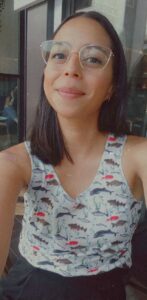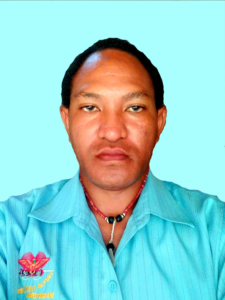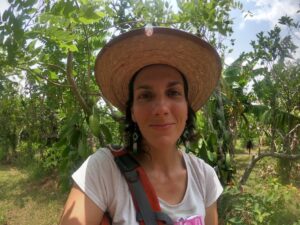Our language is being used in story telling and similar disciplines. I am very proud that my mother tongue
and our ecological knowledge are being used to teach the biological sciences.
Hilario Poot Cahun—Universidad Intercultural Maya de Quintana Roo
We are an interdisciplinary synthesis of anthropologists, marine & terrestrial scientists, Indigenous peoples, musicians, educators, photographers, students, artists, geographers, economists, fishers, linguists, tour guides and conservationists. We are women and men who are dedicated to creating a platform using culturally appropriate methodologies to teach fundamental marine ecosystem conservation concepts across the greater Caribbean basin, the Gulf of México, the tropical western Atlantic and beyond… We are Marine Conservation without Borders and now you are too!
Australia
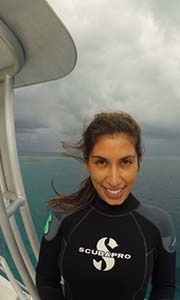
Name: Me’ira Mizrahi
Country: Australia
Language(s): English
Position: Contributing Author
Affiliation: James Cook University
Occupation: PhD (Candidate)
url: http://conservationplanning.org/people/
Bio: Me’ira is a marine technical advisor consultant to Fauna and Flora International’s Cambodia and Myanmar program. She does this alongside her PhD at James Cook University, which researches the social dimensions of marine protected areas. Prior to her work in Southeast Asia, Me’ira worked as a field scientist for Blue Ventures in Belize, monitoring the Bacalar Chico Marine Reserve and researching the management implications of the diet of invasive to the Caribbean lionfish.
Belize
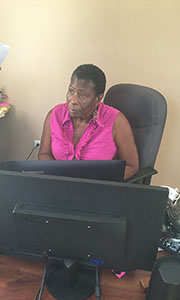 Name: Myrna Manzanares
Name: Myrna Manzanares
Country: Belize
Language(s): Kriol, Inglish
Position: Senior Editor
Affiliation: National Kriol Council
Occupation: Author & Educator
Bio: Myrna Manzanares is an ardent human rights, sexual and reproductive health rights, women, youth, community, and education activist. She is also an International traditional storyteller, a published writer, poet, dramatist, educator and a trained counselor. She is the immediate past president of the National Kriol Council (NKC) and perceives herself as a culturist, concerned about her Kriol Culture as well as inter-ethnic harmony of the Belizean peoples and by extension the world. She is the present Cultural Attaché to the National Kriol Council. She serves on the Editorial Board of the Journal for Belizean studies and is one of the editors of the Kriol language materials, including the Kriol/Inglish Dikshinari and the yearly Kriol Kalinda, published by the Kriol Langwij Projek, the linguistic arm of the NKC. In 2016 she coordinated the completion of the New Testament in Kriol through the Wycliffe Institute. She is on the executive board for the Belize History Association. Ms. Manzanares received the British Empire‘s medal from the Queen of England in June of 2008, for her work in Culture, Education and Social Development, and a Meritorious award for her service to Belize in 2010. She also received the Woman of Culture award from the National Institute of Culture and History during Women’s History month in 2016.
 Name: Anai Carolina Castillo
Name: Anai Carolina Castillo
Country: Belize
Language(s): Kriol, English
Position: Ethnotranslator
Affiliation: Nazarene High School
Occupation: Student
Bio: Anai Castillo is a student living in Belize City. I met Mr. Robby when I was 1 month old. I would crawl around following him while he made cow noises for me. He would always make me laugh and still does. He left before I learned to walk and I did not want to walk. Months a later when he returned and walked in the door I saw him and walked straight to him. I am now have sixteen years and am in 4th Form at Nazarene High School in Belize City. I am applying to study business at the University of Belize.
I want to continue to get good grades and make my family and Mr. Robby proud. I am very happy he asked me to help with the book. Having a science book in my language makes me feel proud and strong.
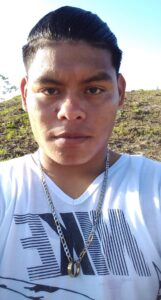 Name: Juan Ico
Name: Juan Ico
Country: Belize
Language(s): Mopán, English and creole
Position: Ethnotranslator
Occupation: Farmer
Bio: My name is Juan Ico, I was born in San José Village Toledo, Belize. I live there today with my parents where I am building my house. I completed my primary education at San José RC School. Thereafter, I pursued my secondary education at Julian Cho Technical High school where I received a diploma from the Science Department. I am a proud Mopán Maya person with English as a second language.
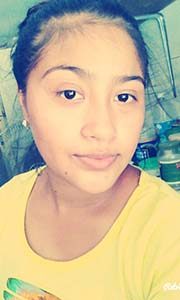 Name: Zaida Nayelhi Majil
Name: Zaida Nayelhi Majil
Position: Associate
Occupation: Student
Affiliation: Muffles Junior College
Position: Biology/Natural Resource Management
Country: Belize
Language(s): Kriol, English, Spanish
Bio: Zaida Nayelhi Majil is 21 years old and was born in the Belize City. She now lives in Orange Walk Town. There she spent more than her life living inland but something about marine life and protecting the environment inspired her to study science at Bishop Martin High School. She currently attends Muffles Junior College studying biology and natural resource management. Zaida will soon complete her associates in 2017 and is looking forward to studying more about Belize’s natural resources. She hopes to become a marine biologist.
In her spare time she learn everything she can about the sea and enjoyed watching documentaries about marine ecosystem and the species found therein. Zaida cares for all and terrestrial flora and fauna, especially those being affected by climate change. She enjoys speaking Kriol, the language of the fishers of Belize. She once work with Mr. Robby Thigpen on a book about the sea that was written in Kriol. He inspired Zaida with his belief that marine biology is for all Belizeans, which is one of the things that encouraged her to pursue studies in biology.
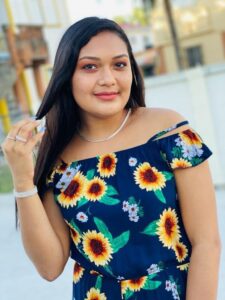
Name: Yarisel Marleni Castillo
Occupation: Student
Affiliation: Marine Conservation without boarders
Position: Translator
Country: Belize
Language(s): Kriol, English, Spanish
Bio: Yarisel Castillo is a student living in Belize City. She has known Robby from since I was very young. Her grandfather, uncles and some cousins are fishermen. Robby came to live with the Castillo family in 2005. He was interesting in learning about the fishermen of Belize the waters and the marine life. During his time Belize he had learned many things from the fishermen about fishery. He says that the fishermen were the best professors he ever had. Her older sister and aunt has helped with his scientific investigations. He always wanted to include Belizeans in everything he was doing. Years have passed and he still comes visit the Castillo family in Pickstock. Now Yarisel is a young adult and is helping with his work. “This project is important to me as well as my country because it is all about protecting the sea and the marine life. Also it is vital for the future of the fisheries of Belize. I look forward to continue to help Mr. Robby with this amazing project.”
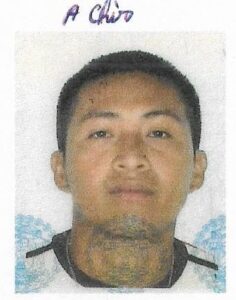 Name: Richard Peck
Name: Richard Peck
Country: Belize
Language(s): Mopán, English, Creole
Position: Ethnotranslator
Affiliation: San José RC School
Occupation: Teacher
Bio: My name is Richard Peck from the beautiful village of San José in the Toledo district, situated approximately 30 miles South West of Punta Gorda town, southern Belize. I was born and raised in this peaceful community.
At the age of six (6) I was admitted at San José RC School to acquire primary education. With the inexorable help of my parents and teachers, I successfully passed my Belize National Selection Examination (BNSE) in the year 1997. During this year I enrolled at Toledo Community College (TCC) to obtain secondary education. Through unrelenting struggles I successfully graduated from this institution in the year 2001.
Fortunately, after graduating from high school I was given a teaching post at my home village – San José RC School in February of 2002. I served this community for 19 years. During those years of service I struggled and obtained a First Class Teacher’s Certificate in the year 2004.
During my years of service in my beautiful village, with the assistance of the Almighty I was able to organize a vibrant church youth group. I learned to play guitar and I became a member of church choir. Furthermore, I became a scout leader, trained and became a “Wood badger”. As a result, I invested one Venture Scout unit and two (2) Scout groups in the years 2007 and 2011. These were great moments in the livelihood of the majority of the youth in this peaceful community. On a regular basis we venture into extreme adventures/expeditions, survival and numerous camp outs. Such vibrant programs engaged energetic scouts into burning their energies in positive activities and learnt to become good citizens.
In the year 2004, I got married to my beloved wife Cornelia Canti from the beautiful village of Santa Cruz. With the blessing of God, we have 3 sons Alvaro, Karl and Akeem Peck, ages 15, 9 and 5 year respectively and a daughter, Lanisha Peck 12 years old.
Then in April of 2010, I was elected Village Council Chairman. During my reign as village Council Chairman, one major community development that I accomplished with full support from European Union through Plenty Belize International, was the realization of Solar Energy Project.
After a decade of teaching in my own community I was granted, by the Ministry of Education study leave in September of 2012. Two years later I obtained my Associate Degree in Primary Education.
Subsequently in the year 2013, after a long and tiresome venture, the Maya Mopán Catholic Song book was finally published. All songs were written in standard Mopan. I used the knowledge I mastered in the Maya Mopán course, for which I possess a Language Training Diploma to write the songs. These songs were translated from Qʼeqchiʼ Maya to Mopán Maya. This was a major accomplishment for the Mopán communities and at the same time serves as a Mopan language revitalization initiative. At the same time, I was tasked, by the Tumul Kin Center of Learning, to prepare the Mopán Maya Spelling M list for primary school completions for 3 years, for which I also served as pronouncer in the years 2012, 2013 and 2014.
Currently I am serving San José RC as Vice Principal for the past 6 years now.
Nikki Buxton
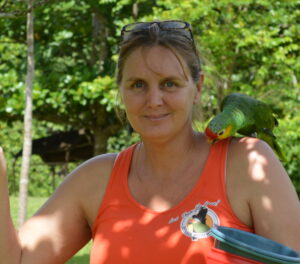 Name: Nikki Buxton
Name: Nikki Buxton
Country: Belize
Language(s): English
Position: Contributing Author
Affiliation: Belize Bird Rescue
Occupation: Founder / Director
Bio: Nikki is a founder-Director of Belize Bird Rescue (BBR) in Central America. The facility was created in 2004, and BBR has been working with the Belize Forest Department since then to reduce or eliminate the illegal trade in wild-caught parrots. BBR has developed an innovative rehabilitation programme for former-captive and hand-reared wild parrots with documented results, addressing inappropriate diet, husbandry-related conditions and adverse behaviors through careful flock-building, enclosure management and nutrition. Parrots soft-released following rehabilitation at BBR are documented thriving and breeding in the wild. BBR also hand-rears endangered yellow-headed Amazon chicks, and has been releasing them back into the wild since the programme began in 2014.
Bonaire
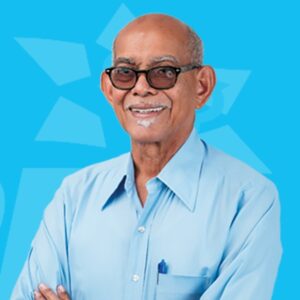 Name: Hubert Vis
Name: Hubert Vis
Country: Bonaire CN (Dutch Caribbean)
Language(s): Papiamentu & Dutch
Position: Ethnotranslator
Affiliation:
Occupation: Retired civil servant and teacher & active translator
Bio: Born in Bonaire, studied in the Netherlands, professional career in the Netherlands and Bonaire
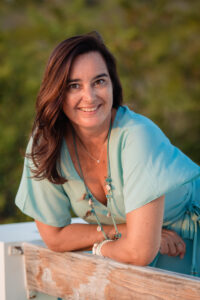 Name: Lilianne Hercules
Name: Lilianne Hercules
Country: Bonaire
Language(s): Dutch, English, Papiamentu, (little bit of Spanish, Italian, French, German)
Position: Project Education Officer Stinapa
Affiliation: STINAPA
Occupation:Education specialist
Bio: David Attenborough's documentary made an impression on me; this filmmaker has in mind how the earth has changed during his lifetime. We see very clearly that it the 'green' on earth decreased, that a lot of attention has been paid to the economy and that nature has received much less attention. The step from 'knowing' that NOW is the moment to act to 'really DO something' is a big one, but this is exactly what STINAPA does on Bonaire and that is why working at STINAPA also appeals to me.
As an educational expert, I have developed competencies in shaping projects with design thinking, in action learning and action research, collaborative learning, multiple intelligences, network learning, digital didactics, blended learning and working on awareness in various areas, including sustainability. Years ago I consciously opted for a broad study where you learn a lot can have an impact in different ways and where your pupils, students and organizations can instill enthusiasm for learning, if this is done in an inspiring and relaxed way. To stimulate curiosity through a good lesson or training structure with clear goals, activating working methods and beautiful content.
STINAPA has been doing fantastic work for years for Bonaire to protect the reef and to live up to the name Blue Destination.
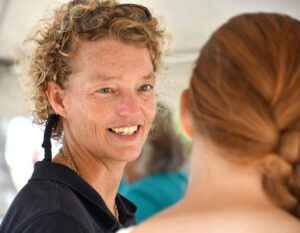 Name: Monique Grol
Name: Monique Grol
Country: Bonaire (Caribbean Netherlands)
Language(s): Dutch & English
Position: Contributing Author and Photographic Contributer
Affiliation: STINAPA Bonaire
Occupation: Communication and Education Manager
Bio: Monique is a passionate marine biologist and nature educator. She spent her teenage years in Aruba, then studied Biology at a Dutch University. As part of her Masters research she studied herbivory and tree regeneration in a Bolivian rainforest and fish distribution patterns between the coral reef and shallow-water habitats such as mangroves and seagrass beds in East Africa. She expanded on this latter marine theme during a 5-year PhD throughout the Caribbean. She moved to Western Australia and continued working on fish and shark distribution patterns before she made a switch to the world of corals working on the Great Barrier Reef. Here she learned about Citizen Science and became the CoralWatch Project Manager in 2015. Since 2021 she lives in Bonaire and works at STINAPA (National Parks) as the Education and Communication Manager managing and providing nature and environmental education and outdoor activities to teenagers and adults as well as managing the communication team.
Brasil
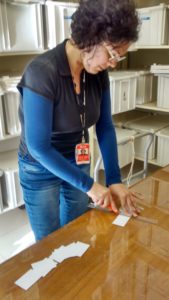
Nome: Isabela Costa Moreira
País: Brasil
Línguas: Português, Inglês
Posição: Autor Senior
Afiliação: Museu de Astronomia e Ciências
Profissão: Conservadora de bens Culturais
Bio: Isabella a Museum Conservator living in Rio de Janeiro, Brazil. Currently she is pursuing an MA in Conservation of Science Artifacts. Her interest is in sustainability in museums. Isabella received a degree in “Portuguese/English Language and Literature” in the 90’s, and has worked as a translator for many years. She has many personal interests that go beyond her education, and one of these is a concern for the marine life that we are all responsible for.
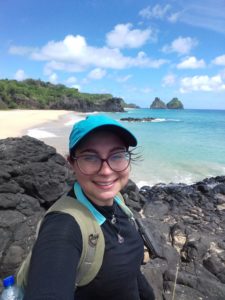
Nome: Luisa Maria Diele-Viegas PhD
País: Brasil
Línguas: Português, Inglês / Portuguese, English
Posição: Tradutor, Autor Contribuinte
Afiliação: Instituto de Biologia, Universidade Federal da Bahia
Profissão: Researcher biologist / Bióloga pesquisadora
Bio: Luisa M. Diele-Viegas is a researcher biologist at Federal University of Bahia, Bahia State, Brazil. She received her B. S. in Zoology at Federal University of Rio de Janeiro, her M.S. in Zoology at Federal University of Pará, in association with the Museu Paraense Emílio Goeldi, and her PhD in Ecology and Evolution at University of Rio de Janeiro, Brazil.. Her primary research interests include human macroecology and the influences of climate changes on thermal physiology, ecology, evolution and distribution of Squamate reptiles, and the definition of priority areas for species’ conservation.
Canada
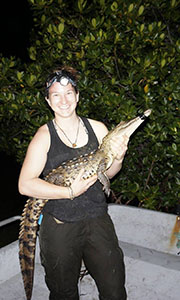
Name: Miriam Boucher
Country: Canada
Language(s): English
Position: Contributing Author
Affiliation: West Virginia University, Crocodile Research Coalition
Occupation: Graduate Student
Bio: Miriam is a Canadian native who earned her Bachelor’s degree in environmental biology at Wingate University, North Carolina. In 2014 she became involved with crocodylian conservation efforts in Belize, assisting with ongoing population monitoring, parasitology research, and community engagement projects. Miriam is a current research affiliate of the Crocodile Research Coalition and pursuing her Master’s degree in wildlife management from West Virginia University, investigating behavior and acoustics of American crocodiles in Belize.
Colombia
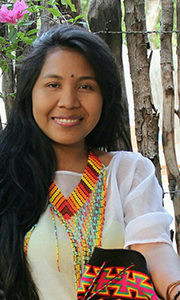 Nombre: Aminta Peláez Guariyu
Nombre: Aminta Peláez Guariyu
Idioma(s): Wayuunaiki, Español
Posición: Etnotraductor
Ocupación: Etnoeducado
Afiliación: Colectiva Wainpiria
País: Kolompia
Bio: Aminta Pelaez es una mujer wayuu del clan Wouliyuu nacida en las montañas del sur de La Guajira, escritora y etnoeducadora. Desde niña se ha apasionado por el arte en toda la amplitud de sus lenguajes: literatura, pintura, fotografía, teatro etc., espacios en los que ha incursionado de una u otra manera. En el 2014 fue publicado por el Ministerio de Educación Nacional de Colombia su primer cuento infantil titulado “Guajirita” en versión wayuunaiki-español, donde aborda los distintos aspectos relacionados con la cosmovisión indígena wayuu desde la perspectiva de una niña.
Ha ejercido la Etnoeducación como docente de aula en una comunidad indígena durante los últimos 7 años; actualmente coordina el Colectivo Wainpirai, un grupo de jóvenes wayuu que procuran reunirse para debatir diversos temas que afectan al pueblo wayuu desde las artes, lo audiovisual.
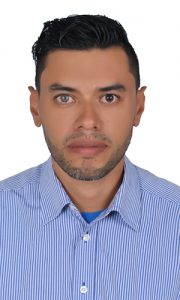
Nombre: Alvaro Andrés Moreno Munar
Posición: Coordinador de País, Autor de la contribución, Traductor
Ocupación: Investigador
Afiliación: Universidad de Bogotá Jorge Tadeo Lozano Corpescaribe-SENA
Posición: Biólogo Marino
País: Colombia
Idioma(s): Español, Ingles
Bio: Biólogo Marino con intereses de investigación y conservación de especies marinas amenazadas de extinción, especialmente las tortugas marinas, temática desde la cual he abordado diferentes proyectos enfocados a la caracterización de ambientes para generar lineas base de investigación tanto de especies como de ecosistemas prioritarios para su conservación, utilizando heramientas como la educación ambiental el manejo de sistemas de información geográfica y la participación comunitaria.
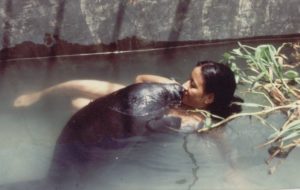
Nombre: Nataly Castelblanco-Martínez PhD
País: Colombia
Idiomas: Español, Inglés, Portugués, Francés
Posición: Coautor
Afiliación: CONACYT/Universidad de Quintana Ro/FINS
Profesión: Bióloga
La doctora Nataly Castelblanco es bióloga por la Universidad Nacional de Colombia, titulada mediante tesis considerada ‘Meritoria’. Posee un título de Maestría en Ciencias en Biología Acuática y Pesquerías por el Instituto Nacional de Pesquisas da Amazônia (Brasil). Desarrolló su doctorado en Ecología y Desarrollo Sustentable en El Colegio de la Frontera Sur (México). Su experiencia profesional incluye más de 18 años en investigación y conservación en paises en desarrollo (Colombia, Venezuela, Brasil, Perú, Guyana Francesa, México y Belice). Posee amplia experiencia en el manejo de recursos acuáticos, especialmente orientada a la conservación de especies y ecosistemas vulnerables. Sus líneas de investigación se han enfocado en manatíes, delfines y nutrias, abordando aspectos como auto-ecología, ecología trófica, dinámica poblacional, comportamiento alimentario, crecimiento, etno-biología y conservación a diferentes escalas. Ha establecido un registro constante de investigación científica independiente, demostrado por la publicación de artículos en revistas arbitradas e indexadas, notas de divulgación, capítulos de libros y presentaciones en conferencias. Actualmente se encuentra vinculada laboralmente al CONACYT como Catedrática comisionada a la Universidad de Quintana Roo; en el marco del proyecto a largo plazo ‘Implementación de monitoreo de especies de megafauna acuática con prioridad para conservación del Caribe Mexicano’, dentro del cual desarrolla proyectos de investigación y monitoreo de las especies de mamíferos acuáticos de la region. Actúa como coordinadora del grupo técnico-científico de la Red de Atención a Varamientos de Mamíferos Marinos del Estado de Quintana Roo. Es miembro del Grupo de Especialistas en Sirenios de la IUCN y miembro del Sistema Nacional de Investigadores (SNI 1).
Costa Rica
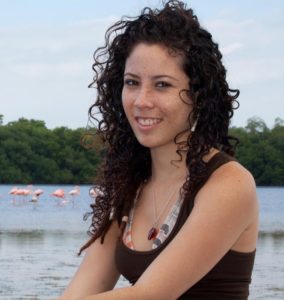 Name: Katherine Ulate Gómez
Name: Katherine Ulate Gómez
Country: Costa Rica
Language(s): Spanish, English
Position: Contributing Author
Affiliation: SONATI
Occupation: Biologist and Environmental Education
Bio: Katherine Ulate is a biologist focused on tropical biology, conservation and environmental education. She also has extensive knowledge in organic agriculture and medicinal plants. She is currently studying for a degree in natural resource management at the National University of Costa Rica. Her thesis theme is focused on environmental education using medicinal plants with school children. She has worked as a naturalist guide in the Rara Avis Private Nature Reserve, located in Hosquetas de Sarapiquí, Heredia. She has worked as a consultant for Panthera and as a volunteer for the Tropical Science Center. She has also worked for 4 years as secretary of the Costa Rica chapter of the Mesoamerican Society for Biology and Conservation.
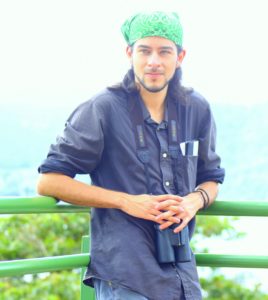 Nombre: David Segura-Sequeira
Nombre: David Segura-Sequeira
País: Costa Rica
Idiomas: español, inglés, alemán
Posición: Autor, contribuyente de contenido
Afiliación: Las Arrieras Nature Reserve
Profesión: Biólogo Tropical
Bio: I’m a field biologist specialized in tropical ecosystems with emphasis on ornithology and landscape analyses through Geographical Information Systems. I got my degree in Tropical Biology in the National University of Costa Rica, where my graduation project involved a research on how the bird communities of a National Park in the Caribbean on Costa Rica is affected by the traffic of vehicles on a major highway. Currently I’m the director of Las Arrieras Nature Reserve, a private project located in Horquetas of Sarapiqui, where we mix both Scientific Research and Sustainable Tourism to bring the knowledge generated in the forest to local communities and visitors. I’ve got more than 10 years of experience working with birds in several projects involving bird migration, habitat-use, impact of climate change on resident populations and urban corridors for these living creatures.
Cuba
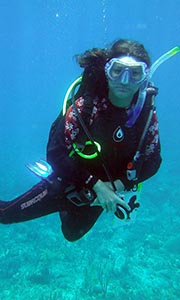
Name: Sheila Rodrígues Machado
Country: Cuba
Languages: Spanish/English
Position: Contributing Author
Affiliation: Instituto de Oceanología
Occupation: Biologist
Bio: Sheila’s line of investigation is focused on the conservation of fishes though molecular instruments. Moreover, she has analyzed the impact of introduced exotic species on the Cuban ecosystems and the effect of marine protected areas on the conservation of herbivorous and carnivorous fishes. She has also focused on sensitizing local communities and technical staff of protected areas on the importance and conservation of fish species. Currently, she is completing her Master’s thesis in Marine Biology.
Curaçao
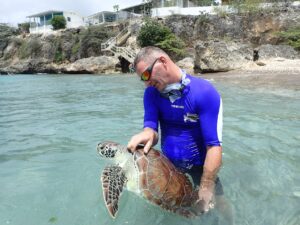 Name: Ard Vreugdenhil
Name: Ard Vreugdenhil
Country: Curaçao
Language(s): Dutch, English, German, Spanish and Papiamentu
Position: Contributing Author
Affiliation: NatuREconnecting
Occupation: educator, storyteller and sea turtle conservationist
Bio: Let’s explore together and make connections! ~Ard Vreugdenhil
Ard was born in the Netherlands in 1970 although he grew up in both Holland and Curaçao. He lectured in social studies and managed innovative projects in the care of (autistic) young people. He is the founder and owner of a coaching company and recently started NatuREconnecting, an educational NGO. He always tried to combine his passion for people and nature, by taking his students outdoors, creating awareness, and involving and including people in activities.
As former field coordinator of STCC and based on educational background, involved in nature conservation of marine life. Based on personal vision and experience reinvented himself to storyteller and (small scale) storyteller, reconnecting kids and teenagers with their environment.
For the last 5 years Ard hasworked in Curaçao as a field coordinator and coached volunteers in sea turtle conservation. I am a passionate and experienced educator, communicator, and conservationist.
Starting Nature Connecting gives me the opportunity to continue gaining field experience and promote nature life in educating and storytelling. I’ve dedicated my life to the collection of nature stories and spreading them among others’. By showing people the beauty of nature, I connect them with the environment by making them aware of the impact they can have. Through storytelling I educate and inspire people into caring for our planet.
After years of expertise, working with children but also with adults in sea life conservation, I’ve realised that it is possible to reconnect people with nature and in doing so, creating small-scale, realistic changes that will make the difference.
Egypt
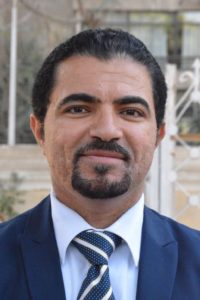 Name: Ahmed M. Shawky PhD.
Name: Ahmed M. Shawky PhD.
Country: Egypt
Position: Photographic Contributor
Affiliation: Technical Office of the Minister of Environment
Occupation: Master Instructor PADI/ EFRI Trainer
Bio: Ahmed Shawky is currently the Environmental Researcher at Technical Office of the Minister of the Environment, Cairo, Egypt. In 2001 he earned a Bachelor of Marine Science from the University of the Suez Canal at Ismailia, Egypt. He completed an M.Sc. in Natural Science Information from the University of Bicocca, Milano, Italy in 2007, studying dolphins, and in 2015 he completed a second M.Sc. in Marine Biology from the University of the Suez Canal. In 2018 he expects to receive a PhD from the University of the Suez Canal, for research on dugong behavioral ecology. He is a Diving Master Instructor, authorized to teach environmental specialty courses such as marine resource management, shark and turtle awareness. Recently in 2018, a new dugong conservation specialty course was approved by PADI (Professional Association of Diving Instructors). He has taught several marine monitoring programs and organised a team called the ‘Egyptian Dugong Team – EDT’, specializing in dugong-related field activities.
Germany
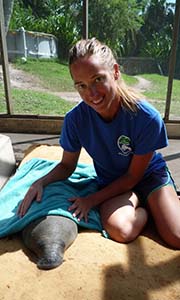
Name: Cora Berchem
Country: Germany
Language(s): German, English
Position: Photographic Contributor
Affiliation: Save the Manatee Club
Occupation: Multimedia Specialist
Bio: Cora Berchem was born and raised in Bonn, Germany, and moved to the United States in 2002. She holds a Bachelor of Arts in Communication Studies from the College of New Jersey and a Master in Film and Media from the J.W. Goethe University of Frankfurt/Germany. She worked in film and television in New York City before becoming involved with manatees in 2013 when she made a feature-length documentary about manatees titled Before It’s Too Late .
Cora works as Save the Manatee Club’s Multimedia Specialist, overseeing the Club’s live webcams , the club’s video production work and social media sites. In addition, Cora assists with the manatee research at Blue Spring State Park and volunteers with the Florida Fish & Wildlife Conservation Commission assisting with rescues and releases of manatees.
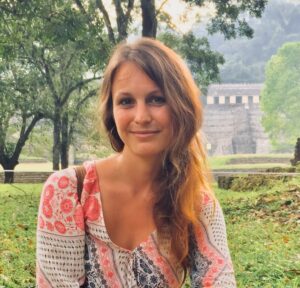
Name: Anja Hutschenreiter Phd.
Country: Germany
Language(s): German, Spanish, English
Position: Contributing Author and Photo Contributor
Affiliation: Instituto de Investigaciones en Ecosistemas y Sustentabilidad, UNAM y ConMonoMaya A.C.
Occupation: Postdoctoral research fellow
Bio: Anja moved from Germany to Mexico in 2017 to study the spider monkeys of the Yucatán Peninsula of México. During her PhD at the Universidad Veracruzana, she studied the effects of tourism and urbanization on Geoffroy’s spider monkeys and developed a passive acoustic monitoring approach to detect spider monkeys in human-modified landscapes. Anja now is a postdoctoral researcher at the Universidad Nacional Autónoma de México and her research interests include studying the coexistence between humans and other animals as well as evaluating species monitoring methods. Anja is a National Geographic Explorer and the Head of Conservation Technology at the NGO ConMonoMaya which is dedicated to the conservation of primates in the Yucatan Peninsula of Mexico.
Greece
Name: Clio Maridakis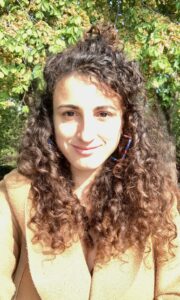
Country: Greece / France
Language(s): French, English, Spanish, Portuguese, Greek
Position: PhD student
Affiliation: Museum National d’Histoire Naturelle Paris
Occupation: Biologist, Macroalgae diversity, Macroevolution, Corallines algae, Sargassum influx, Circular Economy Engineer,
Bio: Clio Maridakis, is franco-greek, she is a PhD student at the Museum National d’Histoire Naturelle of Paris in macroevolution of corallines algae and their sensitivity to the Global Change. Graduated from a Master of ecophysiology and ecotoxicology she is trying to understand the adaptation of organisms to a changing environment, she specialized herself in the diversity of macroalgae.
Also, expert of sargassum influx, she worked two years in the Caribbean Island of Martinique from the French Agency of the Environment, ADEME, on the management of Sargassum, helping projects on collecting and valorization, and is one of the co-host of the Sargassum podcast since 2020.
As a result of an international experience in environmental topics, she is fluent in Spanish, Portuguese, English, Greek and French, and the plurality of languages is a real important value to her. She also believes that international collaborations and exchanges of knowledge are essential to address environmental and social issues.
Guadeloupe
Prénom: Camille 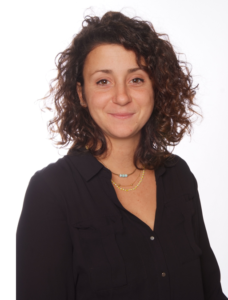 Caumette
Caumette
Pays: Guadeloupe
Langues(s): French-English-Guadeloupean Kreol
Titre du Poste: Contributrice
Affiliation: SPAW-RAC
Professionnelle: Project officer- support to the SPAW Protocol
Bio: Camille is a native from Guadeloupe, a French island in the Caribbean Region. She left the Lesser Antilles to study in Canada, where she graduated from a bachelor in international Law and relations at the Université du Québec à Montréal and has a master in Integrated Water Management from McGill University. Camille is currently working on protected areas and sargassum with the Regional activity center SPAW-RAC, that comes in support of the application of the SPAW Protocol for the Cartagena Convention. Previously researcher with the Mohawk Council of Akwesasne in Northern New York State, Camille has focused her research on communities self-determination in relation with environmental justice and access to water. Passionate by the ocean, she spends a great deal of her time diving or sailing but she knows that she must sometimes take her head out of the water to take a breath... and to get involved with local environmental associations.
Guatemala
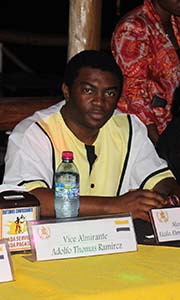 Nombre: Elmer Mauricio Enríquez
Nombre: Elmer Mauricio Enríquez
País: Guatemala
Idiomas: Garifuna, Español
Posición: Etnotraductor, Procurador con Énfasis e Legislación Ambiental Estudiante de la carrera Ciencias en la Comunicación Perito Contador
Afiliación: Conservación Marina Sin Fronteras Wagia
Bio: Comisionado Presidencial Contra la Discriminación y el Racismo Contralos Pueblos indígenas en Guatemala CODISRA-Agosto de 2015 hasta 15 de Noviembre de 2016.
Comunicador social para las organizaciones. ÚARA-GARIFUNA, Luban Awanseruni y Parlamento GarifunaLivingston, Izabal.
Sub-Director Financiero y Jefe de Compras en Dirección Financiera Municipal 2012 hasta 16 de Agosto de 2015.Municipalidad de Livingston, Izabal.
MAESTRO EN LA ENSEÑANZA DEL IDIOMA GARIFUNA para Gahfu, Fundación de Estados Unidos de Norteamérica, lmbruts y Radio Centro America tambièn de Estados Unidos.
ESCRITOR GARIFUNA: CON RESULTADO DE DOS LIBROS ESCRITOS Y PUBLICADOS PARA EL APRENDIZAJE DEL IDIOMA GARIFUNA Y UN DICCIONARIO ESCRITO Y PUBLICADO PARA PRESERVAR LA CULTURA GARIFUNA.
CONSULTOR PARA LOS TEMAS: GESTIÓN Y FORMULACIÓN DE PROYECTOS CULTURALES Y AUTOSOSTENIBLES. ONEGUA 2009 y 2010.
COMSULTOR PARA IMPARTIR LOS TEMAS: GESTIÓN, FORMULACIÓN Y EVALUCACIÓN FINANCIERA DE PROYECTOS PARA LA ORGANIZACIÓN ÚARA-GARIFUNA DE LIVINGSTON, IZABAL AÑO 2017.
DIEZ AÑOS DE EXPERIENCIA EN EL ABORDAJE EN LOS TEMAS DE RACISMO, DISCRIMINACIÓN, XENOFOBIA Y OTRAS FORMAS CONEXAS DE INTOLERANCIA.
EXPERTO EN ABORDAJE Y DIFUCIÓN DEL TEMA DECENIO INTERNACIONAL DE AFRODESCENDIENTES 2015-2024.
MAESTRO PARA LA ENSEÑANZA DEL IDIOMA GARIFUNA PARA LA ACADEMIA: Comercializadora y Representaciones Exclusivas S. A. Directora Profa. Clara Tobias. Año 2013.
Colaborador y Docente en Escuela de Núcleos Familiares Educativos para el Desarrollo (NUFED) No. 443 materias L2 Garífuna, Contabilidad, Matemáticas y Estudios Sociales Livingston Izabal Año 2009.
Fundador de Radio Cultural Garifuna: Sirena Marabu en Livingston Izabal año 2009.
DIRECTOR GENERAL de Radio Cultural Garifuna: Sirena Marabu en Livingston Izabal año 2009 hasta2010.
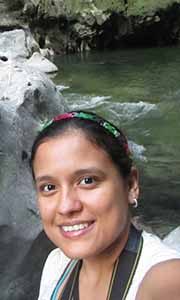 Nombre: Mildred Fabiola Corona Figueroa
Nombre: Mildred Fabiola Corona Figueroa
País: Guatemala
Idiomas: Español
Posición: Autor colaborador
Profesión: Bióloga
Ocupación: Investigadora Asociada del Centro de Datos para la Conservación (CDC), Centro de Estudios Conservacionistas (CECON) de la Universidad de San Carlos de Guatemala (USAC). Editora de Ciencias Naturales de Editorial Santillana, Guatemala.
Bio: Bióloga egresada de la USAC. Investigadora Asociada del CDC-CECON. Ha trabajado con ecología del manatí en Río Dulce, Izabal, Guatemala y como consultora del Consejo Nacional de Áreas Protegidas en la revisión de la Actualización del Plan Maestro del Parque Nacional Río Dulce. Editora y autora de libros de educación primaria y secundaria de Ciencias Naturales para Guatemala y Honduras, en la Editorial Santillana, Guatemala. Participó en la última fase del Proyecto “Cetáceos del Pacífico de Guatemala”; ha colaborado como investigadora en un estudio sobre peces de arrecifes de coral y pastos marinos de Punta de Manabique. Miembro de la Asociación Guatemalteca de Mastozoólogos (ASOGUAMA) y fue presidente del Capítulo Guatemala de la Sociedad Mesoamericana para la Biología y la Conservación (SMBC), durante los años 2014-2016. Actualmente, está estudiando una Maestría en Ciencias en Manejo y Gestión Integral de Cuencas Hidrográficas en el Centro Agronómico Tropical de Investigación y Enseñanza (CATIE), Costa Rica.
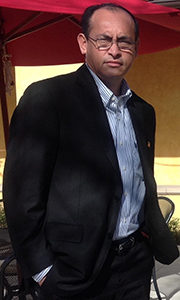
Name: Rony Figueroa, MPA
Country: Guatemala
Language(s): Garifuna, Spanish, English, Italian
Position: Contributing Author
Affiliation: Garifuna American Heritage Foundation United
Occupation: Business Operations Analyst
Bio: Rony Figueroa has worked as the chief financial officer for Garifuna American Heritage Foundation United, Inc., a non-profit organization based in the city of Long Beach, California. He has facilitated cultural workshops at Medgar Evers College in Brooklyn, NY, Cal State University Northridge, Cal State University Los Angeles, University of California Los Angeles, and many other city and state venues around the country. He has organized community assemblies around Los Angeles County to create awareness about the social malice that affects the Garifuna communities such as drug addiction, gang prevention, spousal and child abuse, as well as the retention of the language and the culture which are the link to survival outside Central America.
- Covered California Certified Enrollment Counselor since 2013.
- Garifuna Music and Talk With DJ Labuga - Internet radio Producer and Host
- Humanitarian Award City of Los Angeles 2013
- Garifuna Achievement Award - Entrepreneur & Activist presented by Garinagu Empowerment Movement 2006
- BS in Business Administration with an emphasis on Computer Information Systems from CSU Dominguez Hills
- Master in Public Administration - Finance degree from National University in San Diego, CA
- Mr. Figueroa is currently working as Business Operations Analyst H&P Defense / Public Safety ARNG Los Alamitos Joint Forces Training Base - Project Jefferson
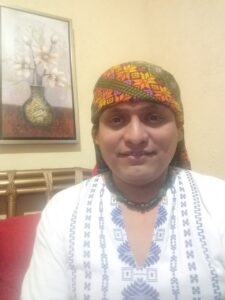 Nombre: Edgar Fernando Pop Tuil
Nombre: Edgar Fernando Pop Tuil
Pais: Guatemala
Idioma(s): Qʼeqchiʼ, Spanish
Posición: Étnotraductor
Bio: Consejo Pastoral Q’eqchi’ 2005 al 2012 Livingston Izabal, Bachiller en Ciencias y Letras; Estudie Filosofía y Teología en el Seminario Mayor nuestra Señora del Camino Sololá, participación en diversos Conferencias Episcopales de Guatemala en la casa Sacerdotal de Guatemala, con la participación de Multicultural y Multietnicultural de Guatemala.
En el año 2005 Recibimos 5,000 Biblias en Q’eqchi’ en Cobán Alta Verapaz para los catequistas y Ministro de la Iglesia Católica para el Vicario de Izabal, fui secretario del Obispo Monseñor Gabriel Peñate como traductor en Q’eqchi’. También di clases y enseñanzas para Conalfa en Barrio la Pista Livingston Izabal. También tuve la participación en Radio la voz católica en Izabal Radio Veritas puerto barrios Izabal, y fui a Belice a reactivar la Cultura Maya Q’eqchi’ en el año 2007. Y enseñanza de Baile de son Arpa y Marimba El Estor Izabal y finalmente fui redactor en Q’eqchi’ para la ceremonia Maya y los rituales y también participación con la Cultura Garifuna. 2005 al 2012. Sobre la prevención del COVID-19 tuve la participación en traducir en Q’eqchi’ por el señor Robby Thigpen año 2020. Y finalmente el Libro MANGLARES en traducir en Q’eqchi’.
Guyana
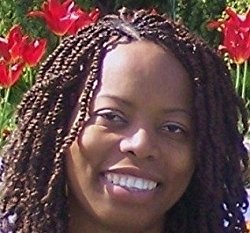 Name: Irene Stephney
Name: Irene Stephney
Country: Guyana
Language(s): Patwah, English
Position: Contributor Author
Occupation: Children Conservation Author
Bio: Irene Stephney is an attorney at law and mom and writer who lives in the beautiful island of Barbados. She obtained her Bachelor of Law degree (LLB) at the University of the West Indies, Cave Hill, Barbados, and the practicing certificate at the Hugh Wooding Law School, Trinidad and Tobago.
She is a native of Guyana, and developed a love for the environment as a child, as most Caribbean children spend lots of time outdoors!
In Barbados, ‘sea eggs’ (sea urchin roe) are considered a delicacy, and out of season poaching threatens the industry. Irene has written a children’s book, Jason and the Sea Egg Mystery, to encourage young children to care about their environment, especially since the marine life is an integral part of island life.
Haiti
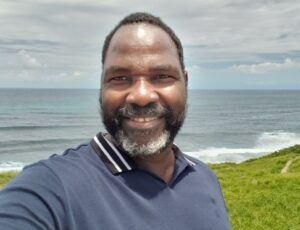
![]() Non ak siyati: Paul A. Belony, Jr.
Non ak siyati: Paul A. Belony, Jr.
Peyi: United States of America
Lang: Kreyòl (Haitian Creole)
Tit: Ethnotranslator
Enstitisyon: Kean University
Occupation: Physicist
Bio: Dòk. Bélony se yon edikatè Ayisyen natif natal epi li se yon fizisyen esperimantal k ap anseye nan Kean University oz Etazini (nan vil Union, eta NJ). Se li ki responsab evalyasyon kou fizik yo ak preparasyon nouvo laboratwa fizik nan inivèsite sa a.
Dòk. Bélony pran yon doub lisans nan Matematik ak Fizik nan Montclair State University (2004). Li fè yon metriz nan Fizik nan Lehigh University (2006). Apre sa, an 2011 nan Lehigh University, li fè doktora li nan Fizik. Tit tèz doktoral li se : Sinetik Emisyon Vapè nan Lizyè Eksplozyon Fil Elektrik, esplore ki efè eta kritik nan lizyè gaz-likid sou on metal epi ki wòl presyon mayetik ak presyon tèmik nan plasma ki jenere apati divès tip eksplozyon fil elektrik, ki gen ladan pensman kwaze (X-pinch) ak pensman radyal (Z-pinch).
Pou kounye a, rechèch Dòk. Bélony konsantre sou devlopman pwosedi esperimantal ak analiz kantitatif epi aplikasyon yo nan pwosesis plasma ak sous enèji renouvlab. Domèn rechèch li elaji nan plizyè branch, ki gen ladan Pwodiksyon Enèji Renouvlab, Enjeniri Tèmosolè, Efè Tèmo-Elektrik, Pwodiksyon Idwojèn, Plasma ki gen Dansite Elve, Teknoloji Piwoliz Plasma, ak Fabrikasyon Sikui pou Pilsasyon ki gen Puisans Elve.
Mete sou sa, pwòf. Belony se yon manm aktif nan Inisyativ MIT-Ayiti, kote li se lidè pwogram fizik la epi li sèvi kòm konseye pou yon pwogram entèna Kean/MIT-Ayiti kote kèk etidyan Ayisyen ki nan inivèsite Kean ap travay pou Platfòm MIT-Ayiti.
url: https://www.kean.edu/academics/programs/chemistry
https://www.linkedin.com/in/paulbelonyphysics1
English
Dr. Belony is a Haitian educator and an experimental physicist who is teaching Physics at Kean University in the USA (Union, NJ). There, he also assesses the Physics Program and update Physics Labs.
Dr. Belony graduated with a double bachelor’s degree in Physics and Mathematics at Montclair State University (2004). He graduated with a master’s degree in physics at Lehigh University (2006). Then, in 2011 at Lehigh University, he graduated with a Ph.D. in Physics. His doctoral dissertation: “Kinetics of Vapor Emissions near Wire Explosion Threshold,” explores the effects of the metallic gas-liquid critical state and the role of magnetic and thermal pressures in plasma generated from various types of electrical wire explosions, including X-pinch and Z-pinch.
Dr. Belony’s current research focuses on the development of experimental procedures and quantitative data analysis and their applications to plasma processes and renewable energy sources. His areas of research span many fields including Renewable Energy Production, Solar Thermal Engineering, Thermoelectric Effect, Hydrogen Production, High-Density Plasma, Plasma Pyrolysis Technology, and High-Power-Pulse-Forming Circuits.
Furthermore, Dr. Belony is an active member of the MIT-Haiti Initiative, where he is the leader of the physics team, and he also serves as an advisor for the Kean/MIT-Haiti Internship program where Haitian students at Kean work as interns for “Platfòm MIT-Ayiti”.
url: https://www.kean.edu/academics/programs/chemistry
https://www.jebcaeditions.org/initiative-mit-haiti--inisyativ-mit-ayiti1.html
![]()
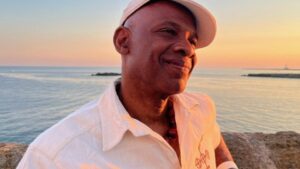 Non ak siyati : Michel DeGraff
Non ak siyati : Michel DeGraff
Peyi: Ayiti
Lang: Kreyòl Ayisyen
Tit: Lengwis
Enstitisyon: MIT Linguistics & Philosophy
Enstitisyon: MIT-Ayiti
Enstitisyon: Akademi Kreyòl Ayisyen
Bio: Michel DeGraff se pwofesè lengwistik nan MIT ; se youn nan fondatè / direktè Inisyativ MIT-Ayiti; se youn nan manm fondatè Akademi Kreyòl Ayisyen; epi li se manm selèk nan Sosyete Lengwistik oz Etazini. Rechèch li pote kontribisyon nan yon apwòch egal ego #ToutLangSeLang konsènan lang endijèn ak lòt lang ki pa kolonyal yo, tankou lang kreyòl nan peyi natif natal li ki se Ayiti. Piblikasyon li yo enplike istwa entelektyèl ak teyori sou ras, espesyalman koneksyon ant gwojemoni ak prejije kont lang kreyòl. Travay li chita nan kad yon ajanda ki pi laj pou respè dwa moun ak jistis sosyal. Nan ajanda sa a, Ayiti se yon egzanp malouk estateji neyo kolonyal kote lang kreyòl la — ki se sèl grenn lang nasyonal nou — toujou bloke an ba baboukèt gwojemoni pandan se lang ansyen kolon yo (lang franse a) k ap sèvi pou dominasyon politik ak jeyo politik. Michel DeGraff abòde defi politik sa yo pandan l ap dechouke mit kont lang kreyòl yo nan lengwistik e pandan l ap angaje Inisyativ MIT-Ayiti nan yon gwo kanpay pou respè inivèsèl dwa moun. Wi, Inisyativ MIT-Ayiti ap goumen kont gwojemoni pandan n ap feraye pou n demokratize edikasyon ann Ayiti. Se kon sa MIT-Ayiti ap mete yon modèl kanpe pou lòt kominote nan peyi Sid yo kote lang twò souvan sèvi kòm zouti pou dominasyon ak esplwatasyon, sitou nan kontèks lekòl neyo kolonyal tèt an ba. N ap jwenn pi plis detay nan sit sa yo :
http://mit.edu/degraff , http://facebook.com/mithaiti , http://twitter.com/mithaiti
https://www.instagram.com/mithaiti/
Michel DeGraff is Professor of linguistics at MIT, co-founder and co-director of the MIT-Haiti Initiative, founding member of Akademi Kreyòl Ayisyen and fellow of the Linguistic Society of America. His research contributes to an egalitarian approach to Creole languages and their speakers, as in his native Haiti. His writings also engage intellectual history and critical race theory, especially the links between power-knowledge hierarchies and the hegemonic (mis)representations of Creole languages, Indigenous languages and other non-colonial languages and their speakers in the Global South and beyond. His work is anchored in a broader agenda for human rights and social justice, with Haiti as one spectacular case of a post-colony where the national language spoken by all (Haitian Creole) is systematically disenfranchised while the (former) colonial language (in this case, French) spoken by few is enlisted for socio-economic, political and geo-political domination. Such devalorization of Kreyòl and other non-colonial languages worldwide, especially in the Global South, is embedded in long entrenched patterns of structural racism and white supremacy whereby language and education are enlisted as tools for neo-colonialism from within and from without. Michel DeGraff tackles these political challenges as he unveils age-old myths about Creole languages in linguistics and as he engages the MIT-Haiti Initiative in a broad campaign for democratizing access to quality education and for the universal respect of human rights. Through the strategic use of Open Education Resources in Haitian Creole (Kreyòl), Platfòm MIT-Ayiti effectively sets up a model for other communities to constructively enlist their native languages as tools for quality education and for inclusion in all other spheres where knowledge and power are created and transmitted. More details at: http://mit.edu/degraff, http://facebook.com/mithaiti, http://twitter.com/mithaiti, http://instagram.com/mithaiti
Honduras
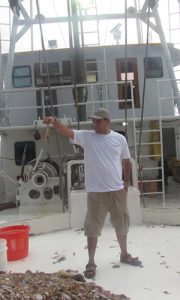 Nombre: José Antonio Romero Duron
Nombre: José Antonio Romero Duron
Posición: Autor de la contribución, Traductor
Profesión: Biólogo
Ocupación: Consultor Independiente
País: Honduras
Idiomas: Español/ Ingles
Bio: Jose Antonio Romero nació en un pequeño pueblo, escondido por las montañas de maravillosa flora y fauna. Conoce el mar a los 19 años, pero a partir de ahí la vida quiso que se ligara a él a través de su profesión. Estudio biología en la Universidad Autónoma de Honduras (UNAH) y su primer empleo, en la Dirección General de Pesca y Acuicultura (DIGEPESCA), de Honduras, lo lleva a conocer mucho más las costas de su país y la gente que vive en ellas. Como parte de su trabajo pudo trabajar para pescadores artesanales e industriales, además de aprender y poner en practica principios de manejo de recursos pesqueros.
En el 2009, como parte del Departamento de Investigación, comienza a trabajar junto al Dr. Nelson Ehrhardt de la Universidad de Miami, en la evaluación del recurso caracol gigante Strombus gigas del Caribe hondureño. Fueron cinco años de investigaciones de las poblaciones de S. gigas con las que se logró poner el nombre de Honduras en el mapa de las investigaciones científicas de vanguardia en toda la Cuenca del Gran Caribe. Asimismo, tal trabajo sirvió para garantizar a la Convención sobre el Comercio Internacional de Especies Amenazadas de Fauna y Flora Silvestres (CITES) que las capturas que la pesquería realizaba no eran detrimentales a la reproducción de la especie. En la actualidad el Gobierno de Honduras usa como base para sus investigaciones y el manejo de la pesquería, los descubrimientos hechos por Ehrhardt y Romero.
Al presente, Jose, colabora con Robert “Robby” Thigpen y la Conservación Marina Sin Frontera, en enseñar conceptos fundamentales de conservación de recursos marino costeros a jóvenes de diferentes países de Latinoamérica. Robby y Jose trabajan en Honduras en diseñar un curriculum de temas sobre estos conceptos para niños y jóvenes de primero a noveno grado para ser impartidos en las escuelas del país.
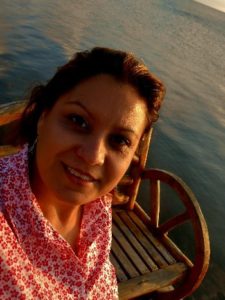 Nombre: Claudia Eveline Ortiz Lopez
Nombre: Claudia Eveline Ortiz Lopez
País: Honduras
Idiomas: Español, Ingles
Posición: Curricular Investigador
Afiliación: Marine Conservation without Borders
Profesión: Educadora
Bio: Born in Juticalpa, Olancho but raised in La Ceiba, Atlantida, she learned to love the beach since a very young age and grew to respect the ocean with all its components by visiting them weekly. She attended college at CURLA- Centro de Estudios Regionales del Litoral Atlántico- in La Ceiba for her first college year but later on she moved to Tegucigalpa, the capital city, and attended UNAH –Universidad Nacional Autonoma de Honduras- for the rest of her studies in Microbiology. From Universidad Europea Miguel de Cervantes she received her Master’s Degree in Strategic Business Management on 2013. During her early years as an Educator in Tegucigalpa, she began to teach her own children at home and later on, opened her own private bilingual school in Danli, El Paraiso known as the prestigious Pebbles and Stones Christian Academy. Many doors were opened for her to be considered in other schools as a supporter and developer for several departments, traveling to different countries, learning their particular culture and processes of teaching and learning. Since she’s always been passionate about what she does, she has gone farther than others, reaching the lives of many, continually changing and improving her personal abilities and skills.
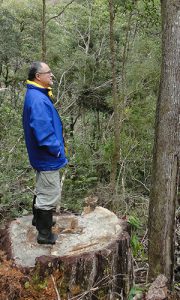 Nombre: Héctor Orlando Portillo Reyes
Nombre: Héctor Orlando Portillo Reyes
Posición: Coordinador de Investigaciones
Profesión:Biólogo
Ocupación: Investigador
Afiliación: INCEBIO (Fundación en Ciencias para el Estudio y Conservación de la Biodiversidad)
País: Honduras
Idiomas: Español, Ingles
Bio: Mi interés profesional es la investigación en su concepto amplio de biodiversidad, con interés en la ecología de poblaciones y sus ensambles, con énfasis en mamíferos/Psitácidos. Así mismo en fragmentación de bosques, enlaces de paisaje y sus relaciones ecológicas. Los temas de interés han estado relacionados con la composición, estructura distribución, la abundancia, e índices de diversidad, Así mismo los efectos de las variaciones climáticas a nivel local, regional, nacional y mundial. Las áreas de trabajo en Honduras han sido las áreas protegidas de la costa Caribe, la región de la Mosquitia hondureña. Otra de las regiones de interés son las áreas protegidas de la región central montañosa de Honduras, como el Parque Nacional la Tigra, las Reservas Biológicas de El Chile, Guajiquiro, Montecillos, entre otras. Versátil en la temática ambiental de Honduras y su contexto global y conocedor de las estructuras públicas y privadas ambientales del país.
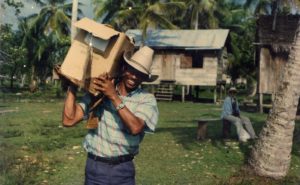 Nombre: Scott Woods Ronas
Nombre: Scott Woods Ronas
País: Honduras
Idiomas: Miskitu, Español, Inglés básico
Posición: Etnotraductor
Afiliación: Comité de Educación Bilingüe Intercultural de la Moskitia Hondureña
Profesión: Licenciado en Educación Intercultural Bilingüe
Bio: Scott Wood Ronas nació en la comunidad de Brus Laguna, Departamento de Gracias a Dios, Honduras; un pueblo a orillas de una bonita laguna llamada Brus Lakun, llena de peces, de aves, de manglares, alimentada por tres ríos (rio Tilasunta, Twas y Sigre), y rodeada por latifoliados además de los manglares.
Desde muy cipote aprendió a andar y a pescar y cazar en la laguna y el mar junto con sus hermanos mayores y amistades, volviéndose experto nadador, pescador y cazador en la laguna y el mar, ya que la laguna de Brus se comunica con el mar. Luego se enroló a estudiar y se hizo primero maestro de Educación Primaria y posteriormente estudió Educación Intercultural Bilingüe en un programa de becas de la USAID y la Kellogg Fundation; en la United School of América de Miami, en la Gallaudeth University de Washington, en la Universidad de las Regiones Autómas de la Costa Caribe Nicaragüense (URACCAN), Diplomados en México, Perú, Ecuador, Guatemala, Nicaragua, sobre la Educación Intercultural Bilingüe.
En 1990 fundó el Comité de Educación Bilingüe Intercultural para la Moskitia Hondureña (CEBIMH) con el apoyo de MOPAWI, a través del cual implementó la Educación Intercultural Bilingüe en la Moskitia Hondureña y en consecuencia en el país. Fue Maestro Auxiliar en centros educativos, Director de Centros Educativos, Director Distrital y Municipal, Director Departamental de Educación y Subdirector General de Educación para Pueblos Indígenas y Afrohondureños en Honduras. Ha dirigido la elaboración de materiales educativos para la enseñanza de la Educación Intercultural Bilingüe para los Miskitus y los otros pueblos indígenas y afrodescendientes en Honduras, como Coordinador General para la Elaboración y Producción de Materiales Educativos Bilingües: Yabal Raya (1º. Grado en L1), Yabal Raya (2º. Grado en L1)
Puente Entre Luces (2º. Y 3º. Grados en L”), Librito de Cuentos “Kisi Nani” en L1, Librito de Colorear para el Primer Grado, Acuerdos para la Estandarización de la Escritura del Miskito (Folleto), Cancionero en L1 y L2, Curriculum Educativo Bilingüe para la Moskitia Hondureña, Guía para el Maestro de Yabal raya 1º. Grado, Guía para el Maestro de Yabal Raya 2º. Grado, Programa de Español como segunda Lengua (PESL) 1º. Grado. Autor de los Libros: “La Moskitia Desde Adentro”, “Conversemos en Miskito” y “El Ultimo Hombre”.
En el presente Scott es docente recién jubilado y colabora con Robert “Robby” Thigpen y la Conservación Marina Sin Frontera, en enseñar conceptos fundamentales de conservación de recursos marino costeros para jóvenes de diferentes países de Latinoamérica. Robby y Scott trabajan en Honduras como Etnotraductor en el diseño de un curriculum de temas sobre estos conceptos para niños y jóvenes de primero a noveno grado para ser impartidos en las escuelas del país.
Nombre: Paola Diaz
País: Honduras
Idiomas: Español, Inglés
Posición: Autor, Colaborador
Afiliación: Universidad de Costa Rica
Profesión: Bióloga
Bio: As part of her biology degree grade thesis, Paola studied the diversity of Myxomycetes (Slime molds) in four different bio-ecosystems at Utila a Caribbean Island in Honduras, during this process, she worked as a research assistant with an official NGO “Bay Island Conservation Association" (BICA) with different social and biological projects, this internship allowed her to work with groups of volunteers to organized this projects, also she start to better understand the different situations with local communities, their weakness, strengths, and needs. That’s why as part of her studies, she is currently studying the spatial variability of stable isotopes of algae and parrotfish as a tool for identifying foraging habitats and further managing compressor fisheries. She is also co-leading a research investigation at Centro de Investigaciones en Ciencias del Mar y Limnologia (CIMAR), at the University of Costa Rica, which studies the current situation of floating Sargasso in the Caribbean Coasts of Central America to create a proposal for the management of the Sargasso strands based on the collective experience of the region.
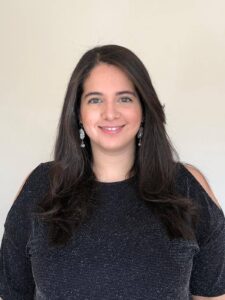 Nombre: Zara Guifarro
Nombre: Zara Guifarro
País: Honduras
Idiomas: español, inglés
Posición: Autor, Colaborador
Afiliación: Roatán Marine Park
Profesión: Biologist
Bio: Zara is a marine ecologist from Tegucigalpa, Honduras. She currently works as the Research Coordinator for the Roatán Marine Park. She coordinates response action plans for Stony Coral Tissue Loss Disease in Roatan, marine megafauna citizen science projects and has also worked with fish spawning aggregations and marine turtle monitoring in the Bay Islands Marine National Park. She has previously worked as a science educator, a research assistant in projects monitoring manatees, marine megafauna, invertebrates, marine food webs trophic dynamics, and deep-sea life. Through these projects, she understood the importance of stakeholder engagement and increasing ocean literacy in the communities to effectively do conservation.
Zara graduated from the National Autonomous University of Honduras (UNAH) with a degree in Biology and has a Master’s in Marine Ecology and Conservation (IMBRSea) from Ghent University in Belgium. She is also a CoalitionWild EXCELerator alumni and a Conservation Leadership Programme (CLP) award grantee.
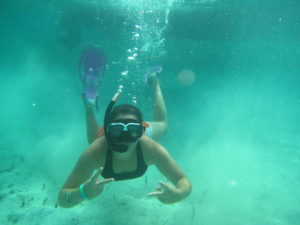 Nombre: Suriel Dueñas
Nombre: Suriel Dueñas
País: Honduras
Idiomas: Español
Posición: Colaborador Fotográfico
Afiliación: Bay Islands Conservation Association-Utila (BICA)
Profesión: Coordinadora PEA y RL para BICA-Utila
Bio: Me apasiona la fotografía y la educación ambiental, trabajar con las personas y aprender junto a ellas, perseguir metas y lograr objetivos. Me gusta pintar, guiar tours, hablarles a otros de mi planeta y sus maravillas, sembrar y cosechar. Etc.
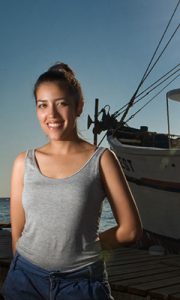
Name: Grazzia Matamoros
Position: Photographic Contributor
Country: Honduras
Language(s): Spanish, English, Swedish.
Affiliation: Centre for Sea and Society
Occupation: Biologist
Bio: Grazzia is a biologist from Tegucigalpa, the capital of Honduras. She has work and research experience in protected areas management, collective action for the governance of marine resources and fishery improvement projects. She loves being involved in anything that is connected with our oceans and the power of people to build sustainability. In her first job she worked with fishers in the Pacific Coast of Honduras to help them improve their livelihoods through the installation of artisanal Fish Aggregating Devices (FADs) and creation of regulations for their use.
In 2007 she moved to the Bay Islands, off the north coast of Honduras, to work at an NGO responsible for the co-management of a Marine Protected Area (MPA). She liked her job very much, but the organization had conflicts with local communities within the MPA. She later understood the importance of involving communities in the management of their resources and in decision-making processes. She also thought she could improve the project by studying social anthropology. In 2011 she decided to change the warm, tropical breeze and colorful coral reefs, for the capital of Scandinavia, Stockholm, to pursue a MSc in social-ecological resilience for sustainable development at Stockholm University.
With her new skills and knowledge, and a lifelong passion for the ocean and its resources, she moved back to Central America to work at World Wildlife Fund (WWF) as a fisheries and marine conservation technical officer. Her principal assignment involved the coordination, planning and implementation of three Fishery Improvement Projects (FIPs) in Honduras, Nicaragua and Costa Rica. On her day-to-day tasks, she worked with the people ‘acting locally’ to improve the sustainability of fisheries- from fishers and processing plants, to municipal and national authorities.
Grazzia moved back to Sweden at the end of 2016 and has become even more curious of how global trade is linked to marine ecosystems in developing countries. Also, how consumers in Europe can contribute to the sustainability of small-scale fisheries by making responsible decisions when purchasing seafood. Grazzia is a big fan of seafood, besides being concerned about the current state of the world’s fish stocks, she spends her free time cooking delicious recipes inspired by the sea.
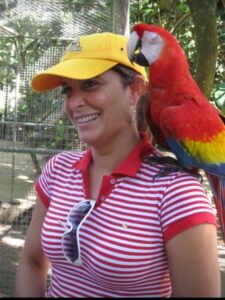 Name: Gabriela Pineda Occhiena
Name: Gabriela Pineda Occhiena
Country: Honduras
Language(s): Spanish, English
Position: Colaborador
Affiliation: Servicios para el Desarrollo Sostenible de los Oceanos (SER-OCEANO)
Occupation: Biologist
Bio: Gabriela Pineda nació en Tegucigalpa, pero sus raices provienen de la costa norte del pais por su madre quien es originaria de Tela, Atlántida y de Ocotepeque en el Occidente del pais por su padre (Q.D.G.C). Ha estado en contacto con el océano y la naturaleza desde muy pequeña, recuerda cuando solia subir a los barcos que llegaban al muelle de Tela donde solia disfrutar mucho de la pesca y nadar con su padre e igualmente de subir y caminar por las montañas. Ella ha sido una apasionada por el mar y finalmente decide estudiar la carrera universitaria en Biología en la Universidad Nacional Autónoma de Honduras (UNAH), y posteriormente hizo estudios de Postgrado en la Universidad de Heredia en Costa Rica en el Insituto Oceanografico Internacional (IOI). Su carrera profesional comienza desde muy joven. Es buzo profesional y en sus inicios se desempeñó como bióloga asistente de campo asignada al departamento de Investigación de la Direccion General de Pesca y Acuicultura (DIGEPESCA), para luego en los años subsiguientes haber ostentado el cargo de Directora de Pesca y Acuicultura del pais en dos momentos en 2001 y 2008-2010, esto le permito conocer el contexto nacional e internacional de la pesca y apoyar en la implementacion de medidas de politica y ordenacion pesquera sostenibles trabajando de la mano con sus principales actores los pescadores artesanales e industriales.
En 2007 comienza a trabajar con especies amenazadas incluidas en la Convención sobre el Comercio Internacional de Especies Amenazadas de Fauna y Flora Silvestres (CITES) particularmente con tortugas marinas, especies marinas y vida silvestre terrestre, coordinando acciones con las autoridades cientificas nacionales y diversas iniciativas para el cumplimiento de la Convención. Ha trabajado incansablemente en temas de ordenación pesquera y su armonizacion en la region centroamericana como funcionaria de gobierno y luego como consultora independiente para la Organización del Sector Pesquero y Acuicola centroamericano (OSPESCA) particularmente con el recurso langosta espinosa del Caribe P.argus asi como en temas de conservación marina como oficial tecnico de pesquerias del Fondo Mundial para la Naturaleza (WWF, por sus siglas en ingles) entre 2017-2018.
En el presente, esta asociada a un equipo de expertos centroamericanos en la empresa Servicios para el Desarrollo Sostenible de los Oceanos (SER-OCEANO). Actualmente Gabriela colabora con Robby de MCB en la consecucion del proyecto Novel Education Tools to Foster Local Ecosystem Sustainability Practices cuyo objetivo es crear materiales educativos sobre el ecosistema en el tema del sargazo, a través de podcast multilingüe y un curso en línea. Pero sobre todo en la incorporación de libros de ciencia en la curricular y planes de estudio bioculturales sobre los ecosistemas marinos locales que esta dirigido a estudiantes de primaria y secundaria en distintos idiomas en la region del Caribe.
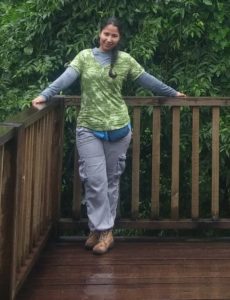 Nombre: Rosa Solki Wood Rodríguez
Nombre: Rosa Solki Wood Rodríguez
País: Honduras
Idiomas: Español, Miskitu
Posición: Estudiante de biología
Afiliación: Departamento de Biología de Ciudad Universitaria - Universidad Nacional Autónoma de Honduras (UNAH-CU)
Profesión: Licenciada en Biología
Bio: Rosa Solki Wood nació en el municipio de Brus Laguna del departamento de Gracias a Dios, un pueblo con una amplia naturaleza rodeado de una gran variedad de flora y fauna. Su pasión por la biología crece desde que estaba pequeña cuando con su familia viajaban por los ríos de una comunidad a otra, ya que admiraba los grandes árboles del bosque a la orilla del rio asi como los cocodrilos y tortugas que se encontraban tomando el sol, tambien desde pequeña tenía cierto interés por los insectos ya que en su comunidad encontraba gran diversidad de ellos.
Al ingresar a la carrera de biología en la Universidad Nacional Autónoma de Honduras (UNAH) se involucró como voluntaria en el museo de entomologia durante 3 años, actualmente está realizando la práctica profesional en el mismo lugar, aumentando asi aumento su pasión por la biología y sobre todo por la entomologí.
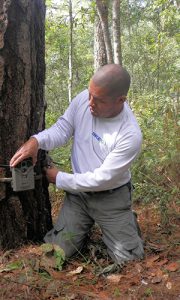
Nombre: Fausto Antonio Elvir Valle
Posición: Fotógrafo contribuyente
Profesión: Biólogo Miembro de la Fundación en Ciencias para el Estudio y Conservación de la Biodiversidad INCEBIO
Ocupación: Investigador en Mamíferos Terrestres y Voladores
País: Honduras
Idiomas: Español, Inglés nivel de lectura
Bio: Biólogo investigador en mamíferos con especialidad en trampas cámara, análisis de las imágenes y ordenamiento de datos. Experiencia en Ecología de Poblaciones, estadística y Sistemas de Información Geográfica (SIG). Capacitador en Monitoreo Biológico en Honduras y otros países de Centro América. Presentador principal de 20 trabajos de investigación en Congresos de la Sociedad Mesoamericana para la Biología y la Conservación. Educación ambiental en temas referentes a la conservación de especies silvestres. Trabajos de conservación de Ara macao (Guara Roja), Ara ambiguous (Guara Verde) y felinos en la Moskitia Hondureña.
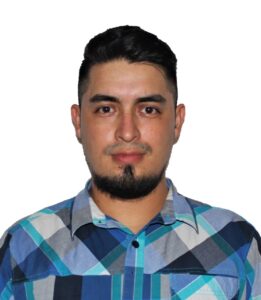
Name: Armando Josué Vásquez Zelaya
Country: Honduras
Language(s): español, ingles
Position: Contribuyente
Affiliation: Consultor Independiente
Profession: Biólogo
Occupation: Estudiante de Maestría en Administración de Proyectos e Investigador
Bio: Nació en Tegucigalpa, la capital de Honduras durante su niñez le gustaba explorar los bosques y pasar tiempo en la naturaleza por lo que decidió estudiar Biología en la Universidad Nacional Autónoma de Honduras (UNAH). Mientras estudiaba realizó diversos voluntariados en diferentes campos de la biología, entre las experiencias mas impactantes obtenidas se encuentra la gira realizada en el año 2011 al Parque Nacional Sierra de Río Tinto participando en la validación del Protocolo para la Conservación del Danto (Tapirus bairdii) junto con dos biólogos hondureños que trabajaban en el Proyecto Ecosistemas y un biólogo británico estudiante de Doctorado y haciendo énfasis en macro-mamíferos, durante la gira se trabajó haciendo monitoreos buscando y rastreando al Danto o sus rastros, así mismo también se trabajó con la instalación de trampas cámara y realizando entrevistas a personas de las comunidades aledañas al Parque.
Desde finales de 2011 hasta 2014 trabajó con la Fundación Panthera como voluntario y participó en muchas giras de campo realizadas a la mayor parte de áreas protegidas de la costa norte de Honduras, realizando monitoreos con trampas cámara en cada una de estas áreas protegidas y así mismo trabajó realizando entrevistas en las comunidades aledañas a las áreas protegidas sobre la presencia o ausencia del Jaguar (Panthera onca) y los otros cuatro felinos que se reportan para el país.
Durante su práctica profesional supervisada realizada en el 2015 trabajó en una Cooperativa de Palma Aceitera realizando monitoreos de fauna en las fincas de palma y realizando monitoreos con trampas cámara para determinar las especies de mamíferos que estaban haciendo uso de las fincas para movilizarse de un área verde hacia otra verde.
A finales del 2016 y hasta marzo del 2020 trabajó con la Fundación Yuscarán en el Proyecto Corredor Biológico La Unión, para el Uso Sostenible y Conservación de la Biodiversidad, en el cual se realizaban trabajos con las comunidades aledañas a la Reserva Biológica Yuscarán con el fin de que se realizaren actividades amigables con el ambiente y sostenibles económicamente para las personas de las comunidades, igualmente trabajó en monitoreos con trampas cámara en todo el territorio de los municipios de Oropolí, Yuscarán y Güinope para poder determinar las especies de mamíferos que habitan en la zona.
Desde el 2017 hasta la fecha trabaja como consultor ambiental individual como especialista en diversos proyectos de evaluación de impacto ambiental, inventarios de flora y fauna y entre otros estudios. En 2018 empezó a estudiar la Maestría en Administración de Proyectos en la Universidad Tecnológica Centroamericana (UNITEC), culminando en julio de 2020. Desde julio del 2018 hasta julio de 2020 fungió como Secretario de Colegiación del Colegio de Biólogos de Honduras. En la actualidad colabora con Robby Thigpen de la Conservación marina sin fronteras en la parte de edición y revisión de algunos materiales de educación ambiental e importancia de algunas especies en peligro y amenazadas en Mesoamérica.
Indonesia
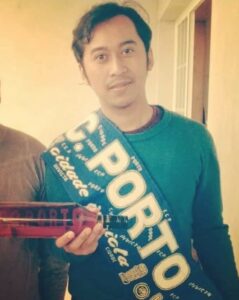
Name: Eri Sidharta
Country: Indonesia
Language(s): Indonesian, Javanese
Position: Ethnotranslator
Affiliation: Rieu Guitar Pickups
Occupation: Entrepreneur
Bio: Following his graduation from International Institute of Social Studies-Erasmus University, Rotterdam, the Netherlands in 2019, Eri decided to do the thing he loves the most, that is making boutique electric guitar transducers at his sleepy hometown, Malang, Indonesia.
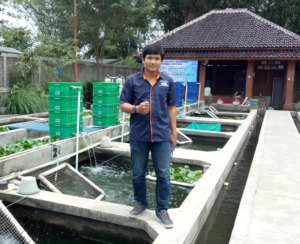 Name: Suriyono
Name: Suriyono
Country: Indonesia
Language(s): Indonesian
Position: Editor
Affiliation: PT. Laju Banyu Semesta / (Eel Aquaculture)
Occupation: Marketing Manager
url: www.sidatlabas.com
Bio: Suriyono was born in Bengkalis Regency, Indonesia. He holds an Applied Master of Fisheries in Aquaculture Industry at Jakarta Technical university of Fisheries 2018. Since 2016, Sur works for PT. Laju Banyu Semesta. The company is engaged in fisheries industry specifically for consultant, trading and eel culture. Sur is working as marketing staff in 2016-2017 and at the end of 2017 was entrusted to hold the position of Marketing Manager. In 2018 he received fully funded scholarship from PT. Laju Semesta to continue his education for postgraduate program at Jakarta Technical university of Fisheries in 2018 in Aquaculture Industry, his research is and was published: Effect of earthworm meal (Lumbricus sp) addition on artifical feed to the production performance of eel (Anguilla bicolor-bicolor) elver stage. He has another project experience: Demonstration on Good Eel Culture Practices in Kaliwungu and Cimrutu Village, Cilacap Distric, West Java Province. Indonesia collaboration with FAO and PT. Laju Banyu Semesta .
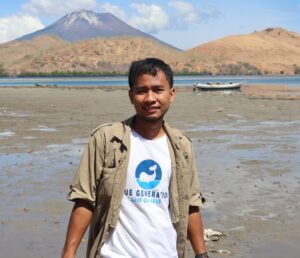 Name: M. Irham Saputra (Irham)
Name: M. Irham Saputra (Irham)
Country: Indonesia
Language(s): Indonesian, Buginese (Basa Ugi)
Position: Editor
Affiliation: Blue Generation, Pearl Oyster Alliance
Occupation: Assistant Hatchery Manager & Founder an environmental organization and pearl oyster worker platform
Bio: Irham Saputra is a young aquaculturist from Indonesia. While studying for Applied Bachelor of Fisheries in Aquaculture Technology at Jakarta Fisheries University in 2016. He was involved in Student Business Association Activities and he was selected as a secretary in the mini-scale plastic shrimp farming business which supporting environmental sustainability with the wastewater management system using biofilter.
He is currently working in Indonesia for the pearl oyster farming as the Assistant Hatchery Manager. He is responsible for assisting the Hatchery Manager in developing the company's pearl shell breeding and doing administration in the Department. Irham has more than 4 years of work experience in breeding pearl oyster (Pinctada maxima) and inoculating marine algael. Besides working in the aquaculture field, he is keen to have more deep knowledge in environment, social and economic aspect, hence, he can work more effectively in sustainable economic development in the rural area.
He founded a non-profit organization called Blue Generation, that addresses environmental, ocean and aquaculture issues, and wil protect our environment and ocean by doing small Research (plastic use), Real Actions (beach clean up, spreading pledge card for the oceans) and Eco-Business (feed for ornamental & freshwater fish). He loves working with nature and local community and believes that good management of natural resources benefits both nature and people.
Pearl Oyster Alliance (POA) is also founded by Irham in the beginning of year 2021, a platform for entrepreneur, private sector, pearl oyster researcher, pearl marketer, student and for those who working related on pearl oyster to share and collaboration the knowledge and learning for sustainable innovation by using social media, website, online and offline event.
Italia
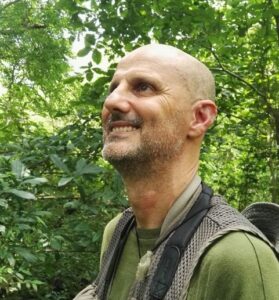 Name: Filippo Aureli
Name: Filippo Aureli
Country: Italy
Language(s): Italian, English, Spanish
Position: Contributing Author and Photo Contributor
Affiliation: Universidad Veracruzana, Mexico & ConMonoMaya A.C. (Mexican NGO)
Occupation: University Research Professor & NGO Vice-president
Bio: Biologist with an undergraduate degree from University of Rome “La Sapienza", Italy, a PhD in Ethology from the University of Utrecht, Netherlands, a postdoc at Emory University, USA. He worked as Professor of Animal Behavior and Director of the Research Center for Evolutionary Anthropology and Palaeontology at Liverpool John Moores University, UK, of which he is Emeritus Professor. He is currently Research Professor at the Instituto de Neuroetologia of the Universidad Veracruzana and a level 3 member of the National System of Researchers, Mexico. He has more than 35 years research experience in primate behavior. Over the past 20 years, he has been studying the behavioral ecology and conservation of spider monkeys in Mexico and Costa Rica. He has published over 170 peer-reviewed articles, over 30 book chapters, and 2 books (University of California Press and Springer). His research has been featured in television, radio, webpages, social networks, newspapers, magazines and documentaries.
More info:
- uv.mx/personal/faureli/
- nationalgeographic.org/find-explorers/filippo-aureli
- google.com/citations?hl=en&user=0EABvHoAAAAJ
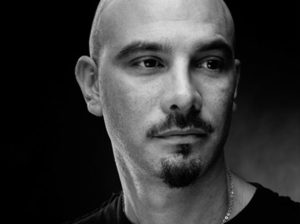
Name: Antonio Busiello
Country: Italy
Language(s): Italian, English, Spanish
Position: Photographic Contributor
Affiliation: Antonio Busiello Photography
Occupation: Photographer
Bio: Antonio Busiello is an award-winning photographer known for his focus on the relationship between man and the natural world that surrounds him. A native of Italy, Antonio studied anthropology at the University of Naples, where he developed a deep interest in mankind and its cultural differences. After graduation he started traveling the world concentrating on his photography. He lived in Central America for many year before moving to California and now lives in London. In 2010 his passion and love for nature brought him to Africa where where he shot Storm Gathering, a photograph that captured 1st prize in the prestigious BBC Wildlife Photographer of the Year in the black & white category. Later that same image was included in the "Best Wildlife Images of the last Fifty Years," published by London's Natural History Museum in 2015. By combining his interest in humankind and his passion for the natural world Antonio has created numerous photographic essays. For example, Pride from Atacama, Camp of Shame or "The Cullatore," in his anthropological project about the Festival of Lillies in Italy, won the gold medal from the Royal Photographic Society. Most recently World Wildlife Fund hired him to shoot its 2016 global campaign. In 2016 his photograph Sinking Venice was chosen as part of the CIWEM - Environmental Photographer of the Year exhibition held at the Royal Geographic Society in London, the third time his work was honored there. In the same year he started freelancing for for the renowned Italian magazine DOVE, where his assignments focused on Naples, his hometown. Antonio's story telling through photography has caught the interest of museums, including the Smithsonian Museum of Natural History, in Washington DC and London Natural History Museum which have featured his work. Additionally his media has appeared in a wide variety of media such as National Geographic, World Wildlife Fund, Time, Discovery Channel, BBC Wildlife, Huffington Post and the Washington Post to name just a few.
In California Antonio is working on an ongoing extensive project about the Channel Islands. A number of his images are part of of the permanent exhibition at the National Park Visitors Center in Ventura, California, including his famous "Anacapa Arch", which has become the park's iconic image.
Kenya
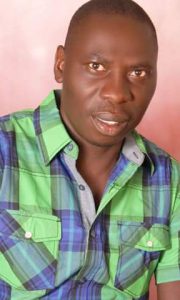 Name: Joseph Amollo Ayienga
Name: Joseph Amollo Ayienga
Position: Regional Coordinator
Affiliation: Vessels of Treasure
Position: Director
Country: Kenya
People Group: Luhya
Language(s): Luhya, Luganda, Luo, Kinyarwanda, Kiswahili and English
Bio: Joseph Amollo Ayienga is the Founder of Vessels of Treasure located in Kenya and Rwanda. High poverty levels and wars in Africa have left many women and girls with no alternative but to go to the streets as sex workers to earn money to feed their children. HIV/AIDS are already horrific problems in sub-Saharan Africa. When women are faced with either prostitution or seeing their children go to sleep hungry, the risk of HIV/AIDS seems unimportant if their children can have food to eat. Like Marine Conservation without Borders, we believe that respect, education in their mother tongue and alternate means of maintaining their families will empower impoverished women and girls to not only enhance control of their destiny through better choices and opportunities but will also endow them with a greater responsibility to the protect these terrestrial and marine ecosystems that their families are dependent upon.
I met Robby Thigpen when he came to live with us in Western Kenya in the 1990’s. He was different from the other mzungu. We traveled together as far west as Jinja, Uganda and to the Maasai lands in the south. He lived among us and slept in the manyatta, ate our food and learned our languages while respecting and listening to us. Even then he had a great passion for the indigenous peoples of our region and the wildlife here. He helped sick animals and people with a love and concern that I have only seen in him.
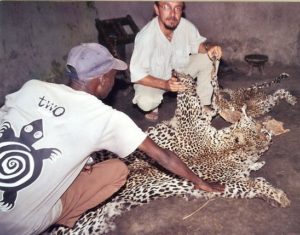 Robby has no fear. One time we heard about a dangerous leopard poacher, Robby went directly to the poacher’s shambe and challenged him. He drank tea and ate bread with the poacher and talked for the entire day and into the night. He taught the poacher why the leopard was more valuable alive to his family than dead. Robby speaks of these things with authority of someone that not only commands knowledge of the importance of these species to the ecosystem and to the community, but also of someone that is aware of the personal needs of the local family. He also acknowledged that sometimes a man will have to hunt herbivorous animals to feed his family and that apex predators can sometimes be dangerous to people. Then he pointed out that this man was not trying to feed or protect his family, that he was simply a poacher stealing his children’s heritage. In the end, the man agreed that these animals were more valuable alive to his family, his village and the people of Kenya than they are dead. After this I remember the man becoming a local advocate for protecting these apex predators and the other animals that are important to tourism in his village. I am very happy to be a part of the Marine Conservation without Borders team and know that many of the women and girls we serve will benefit from an ecosystems education project that embodies the characteristics that I have seen in its founder.
Robby has no fear. One time we heard about a dangerous leopard poacher, Robby went directly to the poacher’s shambe and challenged him. He drank tea and ate bread with the poacher and talked for the entire day and into the night. He taught the poacher why the leopard was more valuable alive to his family than dead. Robby speaks of these things with authority of someone that not only commands knowledge of the importance of these species to the ecosystem and to the community, but also of someone that is aware of the personal needs of the local family. He also acknowledged that sometimes a man will have to hunt herbivorous animals to feed his family and that apex predators can sometimes be dangerous to people. Then he pointed out that this man was not trying to feed or protect his family, that he was simply a poacher stealing his children’s heritage. In the end, the man agreed that these animals were more valuable alive to his family, his village and the people of Kenya than they are dead. After this I remember the man becoming a local advocate for protecting these apex predators and the other animals that are important to tourism in his village. I am very happy to be a part of the Marine Conservation without Borders team and know that many of the women and girls we serve will benefit from an ecosystems education project that embodies the characteristics that I have seen in its founder.
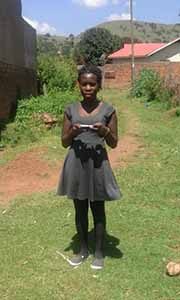 Name: Larina Nashipai
Name: Larina Nashipai
Country: Kenya
Language: Maasai, English, Swahili
Position: Contributing Author
Affiliation: Kenyatta University
Occupation: Conservation Biologist
Bio: Larina Nashipai is a 22 year old Maasai woman. She was raised in the Rift Valley of Kenya in the Maasai culture of her forebears. In 2013 she began her studies at Jomo Kenyatta University (JKU) in Nairobi to pursue a career in conservation. She is achieving this through the Kenya system of education of 8-4-4, 8 year in primary school, 4 years in secondary school and 4 years in the University. Currently she is a fourth year student at JKU and will receive her BS in conservation biology in 2017.
Nashipai likes to spend her leisure time performing her research on the root causes and on the impact of land use change. She has a project on land use change among the Maasai community. Her research site is in Narok, Kenya. Currently she is collecting data on how land use change from pastoralism affects the availability of herbs and the indigenous forest in the area. She is also investigating sustainable land use mechanisms to help people avoid unintended interactions with endangered species, especially those that under threat of extinction in the near future. These accidental interactions are sometimes deadly to the people and usually end with the extermination of the animal. If these accidental contacts can be avoided, then these critically endangered animals will have a better chance of survival.
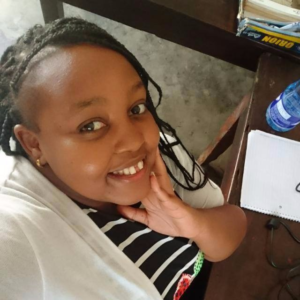 Name: Agnes Mukami
Name: Agnes Mukami
Position: Ethno-translator
Affiliation:University of Nairobi/Kenya Marine & Fisheries Research Institute
Occupation: Graduate Student/Intern- Kenya Marine and Fisheries Research Institute
Country: Kenya
Language(s): Embu, Kikuyu, Swahili & English
Bio: Agnes Mukami is currently a masters students undertaking a degree in Conservation Biology at the University of Nairobi after completing her bachelor’s of science degree in Environmental Conservation and Natural Resources Management. She is in the process of completing her thesis on the ‘use of improved stoves as a method of reducing emissions and mangrove harvesting.’ She has a great commitment and appreciation for conservation, diversity, volunteering and mentoring. During her campus life, she held a leadership position as the women students’ welfare association representative of her campus. She then joined Red Cross Kenya as a lifetime member before volunteering to help youth entrepreneurs as a team leader for Balloon Ventures Kenya. She has recently become a member of Western Indian Marine Scientist Association (WIOMSA) and Women in Marine science (WiMs). She is a passionate writer and exercises her skills of web design acquired from doing web design and IT course on part-time basis.
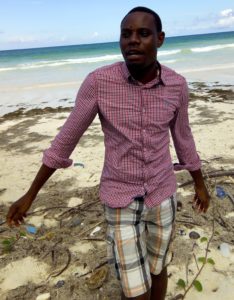
Name: Samuel Zaka
Country: Kenya
Language(s): Duruma, Kiswahili & English
Position: Ethnotranslator
Affiliation: Bible Translation and Literacy
Occupation: Teacher/Educator/ Mother Tongue Education Officer
Bio: Samuel Zaka lives in Kwale County on the South Coast of Kenya. He is an educator and serves as the Mother Tongue Education Officer for The BTL Mother Tongue Education Program for Indigenous Languages in Kenya (MEPIL). He is serving among the Duruma community, a sub-tribe of the Mijikenda group living on the Coast of Kenya. Samuel spends most of his time developing books in the native languages for pupils in the early years of education. He is well versed with the culture of Duruma and Mijikenda people. His primary motivation is to see an enabled society that participates fully in the development of their nation through education for all. He is a graduate of BED (arts) from Moi University, Kenya. After graduation, Samuel worked as a high school teacher in Kenya teaching Kiswahili, History and Government before joining BTL.
Mexico
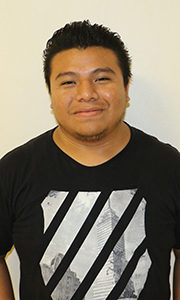
Nombre: Hilario Poot Cahun
País: México
Idiomas: Yucateca, Español, Inglés
Posición: Etnotraductor Cultural, MCB Board of Directors
Afiliación: Universidad Intercultural Maya de Quintana Roo
Ocupation: Profesor-Investigador
Bio: Hilario Poot Cahun nació en Tihosuco, Quintana Roo. Es Licenciado en Lengua y Cultura. En verano 2010 atendió un Seminario de Liderazgo en Universidad de Arizona, EE.UU. En verano 2014 atendió el taller: “Documentación de Lenguas Indígenas” en Universidad de Texas Arlington, EE.UU. Actualmente Profesor-Investigador, Traductor (Español-Maya-Español) y estudiante de la maestría en Educación Intercultural en la Universidad Intercultural Maya de Quintana Roo (UIMQRoo).
 Name: José Manuel Poot Cahun
Name: José Manuel Poot Cahun
Country: México
Language(s): maya y español
Position: Etnotraductor
Affiliation: Universidad Intercultural Maya de Quintana Roo
Profession: Profesor
Occupation: Traductor maya, maestro de lengua Maya, conferencista, Promotor y Gestor de la Cultural Maya en la península de Yucatán.
Bio: Originario de Tihosuco, Quintana Roo, México, Realizé mis estudios profesionales en la Universidad Intercultural Maya de Quintana Roo (UIMQRoo), titulándome con mención especial y recibiendo un “Reconocimiento por mi excepcional desempeño cultural demostrado a través de sus altos valores humanos”. Asimismo, participé en el “Curso Intensivo de inglés y Cultura”, “THE UNIVERSITY OF NEW MEXICO”, Alburquerque, Estados Unidos de América, (2008). también he participado en la “Primera Escuela de Documentación y Tipología Lingüística”, Alemania-México (2015). Durante mi actualización profesional participé en dos grandes talleres: Traducción de Lenguas Amerindias a otros idiomas y Viceversa, Taller de Traducción Literaria en Lenguas Indígenas (2016), en 2017 realizé una traducción para Animal Planet, he participado en varios eventos peninsulares de Traductores e interpretes del Maya Yucateco.
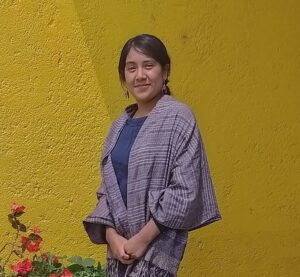 Nombre: Angelica Lujano García
Nombre: Angelica Lujano García
País: México
Idiomas: Mazahua (Jñatrjo), español
Posición: Coautora
Afiliación: Independiente
Profesión: Licenciatura en Lengua y Cultura.
Bio: Soy originaria de la comunidad jñatro del norte del Estado de México, San Nicolás Guadalupe, Estado de México, egresada en 2018 como Licenciada en Lengua y Cultura por la Universidad Intercultural del Estado de México. Durante mi formación académica atendí diversas cursos y seminarios, entre los que sobresalen; 2017 Seminario Sobre Historia y Gobierno de los Estados Unidos de América, 2017 Curso sobre historia y cultura Cubana y 2018 Intercambio académico en Cánada. Mi desarrollo profesional se ha centrado en la difusión de las manifestaciones culturales de los diversos pueblos originarios de México, en especial de la cultura a la que pertenezco, así como la continua revitalización y uso de la lengua jñatrjo en diversos ámbitos, usando como medio, la traducción e interpretación de documentos de tipo científicos y jurídicos de diversos entes públicos.
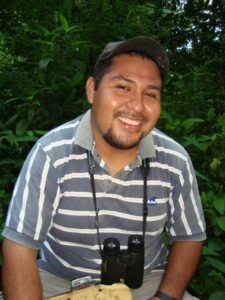 Nombre: Braulio Pinacho Guendulain
Nombre: Braulio Pinacho Guendulain
País: México
Idiomas: Español
Posición: Autor, Colaborador
Afiliación 1: Universidad Autónoma Metropolitana, Unidad Lerma.
Afiliación 2: Conservación de la Biodiversidad del Usumacinta
Profesión: Biólogo
Biólogo interesado en la conservación de los primates y su hábitat en México. Fiel creyente de que la participación social/comunitaria es clave en la conservación de la biodiversidad, por lo que ha participado en múltiples proyectos de conservación que combinan actividades de monitoreo biológico y educación ambiental para concientizar a la población sobre la importancia de conservar a los monos araña y monos aulladores en su hábitat natural. Su rol se ha centrado en evaluar el estado de conservación de las poblaciones silvestres de primates en diversas áreas naturales protegidas del sur-sureste mexicano. Para ello, se ha apoyado de la participación de los pobladores locales a los que les ha enseñado métodos de observación y técnicas de muestreo de primates silvestres. Además de su interés por conocer los patrones de distribución y abundancia de los primates, también ha buscado entender las razones ecológicas del comportamiento del mono araña mediante estudios de su organización social, así como de la potencial relación entre las interacciones sociales y el microbioma de la especie.
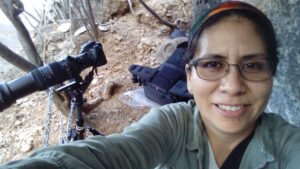 Nombre: Gladys Reyes Macedo
Nombre: Gladys Reyes Macedo
País: México
Idiomas: Español
Posición: Colaborador / Autor
Afiliación: Vinculación Disciplinaria para el Desarrollo Ambiental y lo Social A.C. (VIDAS A.C.)
Profesión: Bióloga
Bio: Licenciada en biología egresada del Instituto Tecnológico del Valle de Oaxaca, México, con maestría por el CIIDIR-IPN-Oaxaca, México.Actual presidenta del consejo directivo de la asociación civil: Vinculación Interdisciplinaria para el Desarrollo Ambiental y lo Social (VIDAS A.C.).
He desarrollado inventarios de avifauna y establecido medidas de mitigación para la misma, por el impacto de apertura de carreteras en distintas regiones del estado de Oaxaca. Desde el 2009 hasta la fecha soy responsable del programa de monitoreo poblacional y reproductivo de la guacamaya verde (Ara militaris) en San Pedro Jocotipac, Oaxaca, dentro de la Reserva de la Biosfera Tehuacán-Cuicatlán (RBTC) en México.
He trabajado en el establecimiento, diseño y puesta en marcha de planes de manejo de Unidades de Manejo y Conservación de la Vida Silvestre (UMAS). He impulsado estrategias para la conservación de la biodiversidad y el desarrollo en comunidades indígenas en Oaxaca y para la resolución de conflictos fauna-psitácidos.
En octubre del 2016, ganamos el primer lugar del Premio Nacional de la Conservación en la categoría de Asociaciones Civiles, convocado por la Comisión Nacional de Áreas Naturales Protegidas (CONANP), por las acciones llevadas a cabo para la conservación de la guacamaya verde (Ara militaris) dentro de la RBTC.
Ganadora del primer lugar a nivel nacional en la convocatoria “Tierra de mujeres” de la fundación Yves Rocher France 2017, por el proyecto de conservación de la guacamaya verde (Ara militaris) en la Reserva de la Biósfera Tehuacán-Cuicatlán, liderado por una mujer. Ganadora de la medalla Juana Catalina Romero Egaña en marzo del 2020, otorgada por el H. Congreso del estado de Oaxaca, México, en la categoría de “Mujer innovadora y emprendedora”.
Miembro de la sociedad Mesoamericana para la biología y la conservación desde el 2003-2020; miembro de la Sociedad para el Estudio y Conservación de las Aves en México: 2013, 2017, 2019; miembro de la Sociedad Mexicana de ornitología 2015-2017; actualmente ocupo el cargo de secretaria del capítulo México de la Sociedad Mesoamericana para la Biología y la Conservación, periodo 2019-2021.
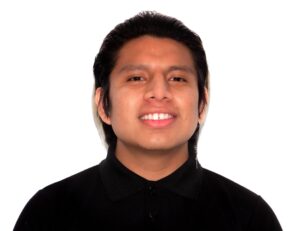 Name: Pedro Angel Poot Cahum
Name: Pedro Angel Poot Cahum
Country: México
Language(s): maya y español
Position: Videographer Youth Advisor
Affiliation: Universidad Popular Autónoma del Estado de Puebla
Profession: Student
Bio:
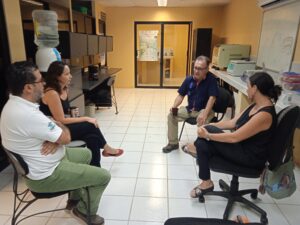 Nombre: Carlos Alberto Niño TorresPaís: México/Colombia
Nombre: Carlos Alberto Niño TorresPaís: México/Colombia
Idiomas: Español/Inglés
Posición: Profesor Investigador, Secretario Técnico de Investigación de la División en Desarrollo Sustentable.
Afiliación (Academic): Universidad Autónoma de Quintana Roo
Profesión: Biólogo marino, Ms.Sc. Dr. Sc.
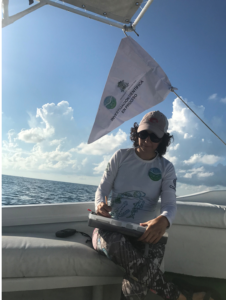 Nombre: María del Pilar Blanco Parra
Nombre: María del Pilar Blanco Parra
País: México
Idiomas: Español, Ingles
Posición: Autor Colaborador
Afiliación: Consejo Nacional de Ciencia y Tecnología-Universidad de Quintana Roo
Profesión: Biologa Marina
url: Researchgate
url: ORCID
url: FINS
Bio: Bióloga Marina de la Universidad de Bogotá Jorge Tadeo Lozano en Colombia y egresada de la maestría y doctorado del Instituto de Ciencias del Mar y Limnología de la Universidad Nacional Autónoma de México. Y realizó un posdoctorado en el Centro Interdisciplinario de Ciencias Marinas en la Paz, B.C.S. Inició sus primeros trabajos con peces cartilaginosos durante la licenciatura estudiando aspectos de las pesquerías de estos organismos en el Caribe Colombiano. Sus primeros proyectos estuvieron enfocados en la ecología y biología de peces en la Amazonia Colombiana, los parámetros poblacionales (Edad y crecimiento) del tiburón azul (Prionace glauca) de la costa del Pacifico Mexicano y el proyecto de doctorado que se enfocó en la biología, ecología y pesquerías de una especie de raya (Zapteryx exasperata) en el Golfo de California. Desde entonces se ha enfocado en el estudio de ecología, pesquerías y biología de tiburones y rayas participando en proyectos con diversas especies tanto en México como en otros paises. Es miembro del comité asesor de especialistas en elasmobranquios de la IUCN para el Atlántico Centro Occidental. Actualmente se desempeña como investigadora en el programa de Cátedras CONACyT en la Universidad de Quintana Roo en Chetumal y como asesora de la Fundación Internacional Para la Naturaleza y la Sustentabilidad A.C.
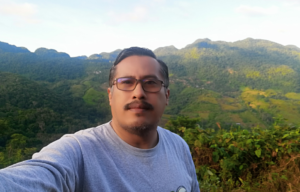 Nombre: Gilberto Pozo Montuy
Nombre: Gilberto Pozo Montuy
País: México
Idiomas: Español
Posición: Autor y colaborador
Afiliación 1: Facultad Maya de Estudios Agropecuarios de la Universidad Autónoma de Chiapas.
Afiliación 2: Conservación de la Biodiversidad del Usumacinta A.C.
Profesión: Biólogo
Bio: Executive Director of Conservación de la Biodiversidad del Usumacinta A.C. Doctor of Science by the Institute of Neuroethology Universidad Veracruzana (2012), Master of Science from the Institute of Ecology AC (2006) and BA in Biology (2002) from the Universidad Juárez Autónoma de Tabasco. Has 17 years of experience in research on ecology, behavior, and wildlife conservation, Level one Member of National System of Researchers and award winner of Recognition of Nature Conservation 2017 by Comission National of Protected Areas of Mexico. Currently is professor of Facultad Maya de Estudios Agropecarios.
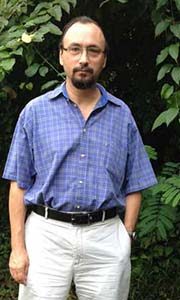
Name: Juan Jacobo Schmitter-Soto
Country: México
Language(s): Spanish, English, Esperanto, French, German, Russian
Position: Contributing Author
Affiliation: El Colegio de la Frontera Sur
Occupation: Biologist, fish specialist
url: http://www.ecosur.mx/academico/jschmitt/
Bio:
- Mexico City, 1965.
- B.Sc. in Biology (UNAM, 1989), Master in Marine Science (CICIMAR-IPN, 1992), Doctor in Biology of Aquatic Systems and Resources (UNAM, 1998), Posdoctorate (University of Michigan, Fulbright fellow)
• More than 80 scientific publications, in addition to some 30 popularizing articles; about 1600 citations.
• Former president and founder of the Mexican Ichthyological Society.
• Science State Prize in Quintana Roo, Mexico, 2008, for the project The Fishes of Southern de Quintana Roo: a decade of changes - Interested in ichthyology: systematics, synecology, and biogeography of freshwater fishes of Mexico and Central America, as well as ecology of Caribbean reef fishes.
- Current project: Connectivity mediated by fish migration between the Caribbean Sea and the bay of Corozal/Chetumal, Belize-Mexico.
Dra. Betsabé de la Barreda Bautista
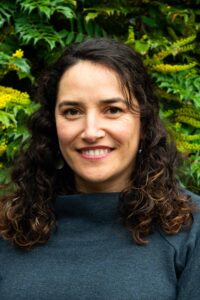 Originaria de la Ciudad de México, Betsabé de la Barreda obtuvo su licenciatura en Biología en la Facultad de Ciencias de la Universidad Nacional Autónoma de México. Desde la tesis de licenciatura empezó a inclinarse por los sistemas de información geográfica y cómo usar estos en las áreas ambientales. Fue entonces cuando decidió hacer la especialización y la maestría en Geomática en el CentroGeo. En ese momento empezó su pasión por la percepción remota, lo que la motivo a continuar sus estudios de doctorado, el cual realizó sobre esa materia en la Universidad de Nottingham, Reino Unido.
Originaria de la Ciudad de México, Betsabé de la Barreda obtuvo su licenciatura en Biología en la Facultad de Ciencias de la Universidad Nacional Autónoma de México. Desde la tesis de licenciatura empezó a inclinarse por los sistemas de información geográfica y cómo usar estos en las áreas ambientales. Fue entonces cuando decidió hacer la especialización y la maestría en Geomática en el CentroGeo. En ese momento empezó su pasión por la percepción remota, lo que la motivo a continuar sus estudios de doctorado, el cual realizó sobre esa materia en la Universidad de Nottingham, Reino Unido.
Desde que terminó el doctorado ha estado trabajando en diferentes proyectos de investigación para entender cuanles son los impactos del cambio climático en el ambiente y en la sociedad. En todos estos proyectos la precepción remota es el común denominador. Actualmente es investigadora de la Universidad de Nottingham y miembro del Sistema Nacional de Investigadores del CONACYT en México. Su proyecto más reciente (financiado por Leverhulme Trust) trata de entender el impacto de eventos climatológicos extremos en los ecosistemas y la sociedad, y como construir resiliencia antes estos.
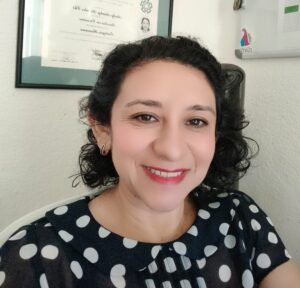 Name: Arely Paredes-Chi
Name: Arely Paredes-Chi
Country: México
Language(s): Spanish (mother tongue), English
Position: Contributing Author
Affiliation: CONAHCyT, UMDI Sisal, Facultad de Ciencias, UNAM, campus Yucatán
Occupation: Research fellow
Bio: I’m Yucatecan very proud of my Mayan background. I received a bachelor in education and a Master in Science in Human Ecology in Mexico. Additionally, I obtained a PhD in Environmental Education in Deakin University, Australia. My research focuses on the study of human beings and their interaction with the natural environment, promoting Environmental Education, Participatory Action Research and Citizen Science in Mexican coastal zones in Yucatan. Belong to the National Research System (SNI), level 1. Working each day to be sentipensante and balance my academic work being a mother of a beautiful boy.
Netherlands
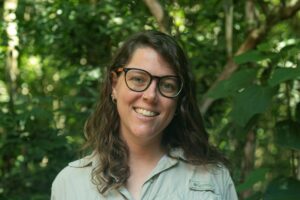 Name: Denise Spaan
Name: Denise Spaan
Country: The Netherlands, Mexico
Language(s): English, Spanish, Dutch
Position: Contributing Author
Affiliation: Instituto de Neuroetología, Universidad Veracruzana
Occupation: Research Professor
Bio: I am a conservation biologist working at the Universidad Veracruzana in Xalapa, Mexico. My research focuses on understanding how primates and birds cope with natural, anthropogenic, and climatic changes in their environments and how they survive in urban areas in Mexico, Indonesia, and Madagascar. The overall objective of my research is to provide conservation decision-makers with the information required to make informed decisions that promote human-animal coexistence. I also help out as Chief Operations Officer at the Mexican NGO ConMonoMaya.
Myanmar
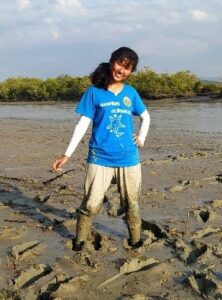 Name: Ne Nan Nandar Nwe
Name: Ne Nan Nandar Nwe
Country: Myanmar
Language(s): Burmese, English
Position: Ethnotranslator
Affiliation: Myeik University
Occupation: Student
Bio: I graduated from Myeik University with B Sc. (Hons.) in Marine Science. I have participated in the Internship Program of MuEuCAP with Fauna and Flora International (FFI) Myanmar that supports MuEuCAP, a European Union Eramus+ Project promoting new approaches to Environmental Education. My thesis researched the above-ground biomass to estimate carbon stock assessment of Mangroves along Lampi Marine National Park that supports from Oikos Istituto. I am currently working as a member for Marine Science Association Myanmar (MSAM) to research the biodiversity of mangroves.
Nicaragua
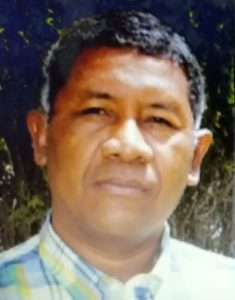 Nombre: Leonzo Knight Julian
Nombre: Leonzo Knight Julian
País: Nicaragua
Idiomas: Ulwa-Miskitu-Español-Mayangna-Twahka-Creole-
Posición: Etnotraductor-Linguista
Afiliación: Comité de Idioma Ulwa Yulka Tunak Muihka Balna para Karawala
Profesión: Sociólogo-Docente
Biografía: Nació el 05 de marzo de 1959 en la comunidad de Awawak (en la lengua Miskitu Karawala) de identidad étnica Ulwa con una mezcla de padre afro-descendiente y de madre Ulwa.
Desde 1988 inició su trabajo de investigación con los lingüistas norteamericanos Ken Hale (que en paz descanse), y Tom Green estudiante lingüista de la universidad Massachusetts de Boston, CAMBRIGE.U.S.A.
Trabaja en el CODIUL/UYUTMUBAL (Comité de Idioma Ulwa) en la comunidad de Awawak de donde se traslada a la ciudad de Bluefields, en el año 2002 con el propósito de continuar sus estudios en la en la educación superior.
Es graduado de sociología con mención en Autonomía en la Universidad de las Regiones Autónomas de la Costa Caribe Nicaragüense (URACCAN) Tiene un post Grado (Maestría en la Educación Intercultural Multilingüe.
Actualmente, es funcionario de la Universidad de Bluefields Indian & Caribbean University (BICU) en la Dirección del Programa de Capacitación Docente.
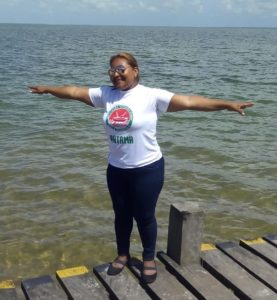 Ayang: Haidey Merly Bautista Salazar
Ayang: Haidey Merly Bautista Salazar
Asang: Nicaragua
Yul: ulwa, wayah (Miskitu), Una (español)
Posición: Etnotraductor
Afiliación: Bluefields Indian and Caribbean University (BICU)
Profesión: Docente de educación primaria y secundaria en Nicaragua
Bio: Mujer indigena Ulwa. Trabajo como traductora de libros en lengua materna desde el año 2004 con muchos proyectos por contratos definidos del SEAR- URACCAN Financiado por Ibis dinamarca , Banco mundia l y otras entidades.
Nigeria
Name: Emmanuel Ihechi Asonye
Country: Nigeria
Language(s): Igbo, English
Position: CEO
Affiliation: Indigenous Hands and Voices
Occupation: Research Professor
url: www.i-hav.org; www.s-deli.org
Bio: Emma Asonye, PhD. is a Speech and Hearing Scientist, and a Sign Linguist. He is the CEO of IHAV/S-DELI the two partner organizations documenting and promoting indigenous signed and spoken languages globally. Dr. Asonye is an affiliate member of the World Federation of the Deaf and runs an educational series on YouTube – Indigenous Hands the Indigenous Voices (www.YouTube.com/c/SDELI). His research interest includes sign language documentation, speech-hearing sciences, early language access, and early intervention program for deaf children. Dr. Asonye is the convener of the first conference on indigenous African signed and spoken languages – the Indigenous Hands and Voices of African Identity (https://www.s-deli.org/indigenous-hands-and-voices-of-african-identity/)
Panamá
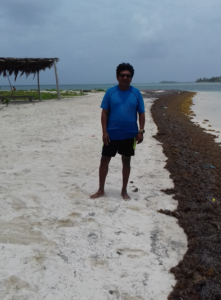 Nombre: Arcadio Castillo Díaz
Nombre: Arcadio Castillo Díaz
País: Panamá
Idiomas: Guna, español, ruso
Posición: Etnotraductor
Afiliación: Centro de Desarrollo Ambiental y Humano (CENDAH), MarAlliance y Panel Ambiental Guna (PAG).
Profesión: Biólogo-investigador, con especialización en Ictiología y piscicultura
Bio: ARCADIO CASTILLO DÍAZ: De la Nación Gunadule, Comarca Guna Yala, nació en la provincia de Colón, Panamá
FORMACION ACADEMICA:
De 1984-1989
Estudio en el Instituto Tecnológico de Estudios Superiores de la Industria y Economía Pesquera de la ciudad de Astrakhan. Ex-Unión Soviéticas (URSS), Rusia. Obteniendo la Licenciatura en Ictiología y Piscicultura.
1989
Cuenta con un Master of Science en Biología.
Del mismo Instituto Tecnológico de Estudios Superiores de la Industria y Economía Pesquera de Astrakhan. Ex - Unión Soviéticas (URSS), Rusia.
Desde febrero de 2020 hasta la fecha (en función) laboro como asistente biólogo de campo del Bosque y del Mar, con la School for International Training Panamá (SIT) de Panamá.
Habilidades:
Cuenta con un Curso Básico de Buceo Científico (agosto, 1993), de la National Association Underwater Instructors (NAUI), OPENWATER II SCUBA DIVER (certificado a 100 pies) y el Curso de Respiración Cardio-Pulmonar (CPR) y Primeros Auxilios.
EXPERIENCIA LABORAL
- De 1993 hasta enero de 2020. Trabajo como Asistente-Investigador Científico: en La Estación Marina de Investigación Científica del Instituto Smithsonian de Investigaciones Tropicales (STRI), en la Comarca Guna Yala y en Isla Colón, Provincia de Bocas del Toro, Panamá.
- Miembro del Panel Ambiental Guna.
- Desde 2017 hasta hoy, apoya a la organización MarAlliance en el Monitoreo de la megafauna marina y pez león y taller/educativos en la Comarca Guna Yala.
- Desde diciembre de 2017. Es coordinador de la Alianza de Pescadores Artesanales Indígena de Centroamérica.
- Miembro del Centro de Desarrollo Ambiental y Humano (CENDAH). Interés en la pesquería de la langosta espinosa (Panulirus argus) del Caribe, los ecosistemas marinos como son los manglares, pastos marinos y arrecifes coralinos en la Comarca Guna Yala.
- Igualmente trabajo en el Programa MarineGeo: el programa estudia la cobertura anual en arrecifes coralinos, pastos marinos, poblaciones de peces de arrecifes coralinos, y la calidad de agua, con fines de estudiar la dinámica poblacional a mediano y largo plazo y monitorear los efectos del calentamiento global del STRI.
- También en el Programa de Monitoreo de Ciencias Ambientales (Environmental Science Program-ESP) del STRI.
- Ha recibido Seminarios, Talleres, Cursos, Simposios, Foros, Entrenamientos e Intercambios en Panamá como en el extranjero sobre asuntos relacionados con los recursos costero-marinos.
- Tiene varias publicaciones en revistas científicas entre estos tenemos: The Journal of the Society for Conservation Biology. En el Libro de la University of Texas Press, Austin ´´Plant and Animals in the Life of the kuna´
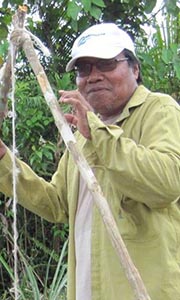 Nombre: Geodisio Castillo
Nombre: Geodisio Castillo
País: Panamá
Idiomas: Guna, Español, Ruso
Posición: Facilitador
Afiliación: Centro de Desarrollo Ambiental y Humano
Profesión: Ing. Agroforestal
url: http://gubiler.blogspot.com/
Bio: GEODISIO CASTILLO. Agroforestal, nacido en la comunidad de Yandub-Narganá, Comarca Kuna Yala, Panamá. Su primera enseñanza fue en la Escuela Rodolfo Chiari de su comunidad. Sus estudios secundarios de bachillerato en ciencias los realizó en la ciudad de Colón en el Colegio San José La Salle y luego los finaliza en la capital, en la Escuela Secundaria Nocturna oficial (ESNO). En 1975 viaja a la Unión Soviética para ingresar al Centro de Agronomía en la ciudad de Briansk, finaliza sus estudios en 1980. Regresa al país y labora como docente en el Instituto Profesional y Técnico (agrícola) de Kuna Yala (1980-1982). Se especializa en planificación de recursos naturales e investigación de técnicas agroforestales, en el Centro Agronómico Tropical de Investigación y Enseñanza por la Universidad de las Naciones Unidas en Costa Rica (1983). Labora como planificador y luego como Sub-Director del Proyecto de Ecología y Manejo de Áreas Silvestres de Kuna Yala (PEMASKY, 1983-1989). Fue miembro de la Junta Directiva de la Fundación de Parques Nacionales y Medio Ambiente de Panamá (PA.NA.MA), 1988-1990. Fundó la Fundación Dobbo Yala y fue su primer presidente (1990-1994). Director Ejecutivo del Programa de Ecología y Manejo de Áreas Silvestres de Kuna Yala (PEMASKY, 1995-2003). Fundador del Centro de Desarrollo Ambiental y Humano (CENDAH, 2004). Facilitó apoyo al Congreso General Kuna como Secretario de la Junta Directiva del Instituto de Investigación y Desarrollo de Kuna Yala (IIDKY, 2004-2005). Laboró como Administrador Regional de la Autoridad Nacional del Ambiente en Kuna Yala (2005-2009). Laboró como Director Ejecutivo del IIDKY (2012-2013). Como CENDAH - miembro del Comité Científico para la Iniciativa Internacional de los Arrecifes Coralinos (ICRI), en el Comité Científico Asesor de ARAP en ICRI, a partir del 2013. Y miembro de la Red del Programa Iberoamericano de Ciencia y Tecnología para el Desarrollo y Adaptación basada en ecosistemas para la gestión sostenible de los recursos marinos en el caribe (RED CYTED - CARIBERO.SOS), a partir del 2014. Actualmente realiza consultoría como especialista del proyecto Sistema de Producción Sostenible y Conservación de la Biodiversidad (SPSCB) del Ministerio de Ambiente (MiAmbiente). Sigue siendo presidente de CENDAH, facilitador y consultor independiente.
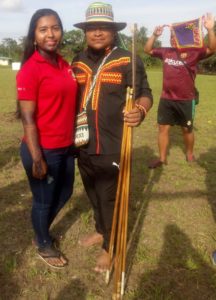 Nombre: Rigoberto Palaciōs Jiménez
Nombre: Rigoberto Palaciōs Jiménez
País: Panamá
Idiomas: Ngäbe, Español
Posición: Colaborador
Afiliación: Universidad de Panamá-C.R.U. de Bocas Toro
Profesión: Estudios en Licenciatura En Español
Bio: Es un amante de su cultura, lucha por rescatar, preservar, mantener y realzar las tradiciones y costumbres del pueblo Ngäbe. Es el representante principal del Grupo Cultural de Jegui o Guará “J. Mónico Cruz Ngäbrión”. Dedica gran parte de sus esfuerzos a desarrollar actividades que reaviven el espíritu de conservar las tradiciones del pueblo. También es atleta Ngäbe en lo Juegos Ancestrales Indígenas de Panamá en el uso de la arquería.
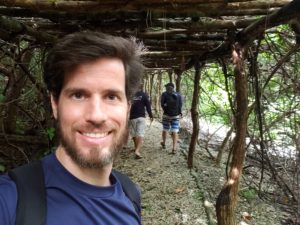 Nombre: Antonio H Clemente
Nombre: Antonio H Clemente
País: Panamá
Idiomas: español, inglés
Posición: Colaborador fotográfico
Afiliación: Fundación MarViva
Profesión: Geógrafo
Bio: Antonio Clemente es especialista en riesgos climáticos y sistemas de información geográfica (SIG). Fungió como investigador científico para el Sistema Regional de Visualización y Monitoreo (SERVIR) en el Centro del Agua del Trópico Húmedo para América Latina y el Caribe (CATHALAC), coordinó el proyecto “Bosques y Agua 1980, 2000, 2010” y contribuyó como autor de GEO 5 Perspectivas del Medio Ambiente Mundial del Programa de las Naciones Unidas para el Medio Ambiente (ONU Ambiente). En MarViva Antonio produce análisis espaciales y cartografía que enriquece los proyectos de adaptación al Cambio Climático, Planificación Espacial Marina y reducción de la Pesca Ilegal, no Declarada y no Reglamentada.
Educación: Licenciatura en Geografía, Universidad Estatal de Florida, Panamá.
Nombre: Karol Gutiérrez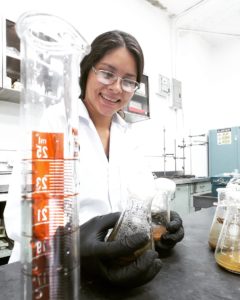
País: Panamá
Idiomas: español
Posición: Ilustrador, Colaborador de fotografía
Afiliación: Fundación Pro-Conservación de los Primates Panameños (FCPP)
Profesión: Química
Bio: Fundadora y codirectora del Proyecto Un Granito de Conservación (UGC). Presidenta de laAsociación de Estudiantes de la Escuela de Química en la Universidad Autónoma de Chiriquí (UNACHI). Miembro del Grupo de Interés Temático de Primates Mesoamericanos de la Sociedad Mesoamericana para la Biología y la Conservación (SMBC).Actualmente soy estudiante tesista en la Escuela de Química de la UNACHI, realizo mi trabajo de investigación en el Centro de Investigación de la Flora Panameña (CIFLORPAN)-Universidad de Panamá. Soy directora del Proyecto de Ecología Química de los Primates de Panamá (PEQPP) e Ilustradora Científica en la Fundación Pro-Conservación de los Primates Panameños (FCPP).
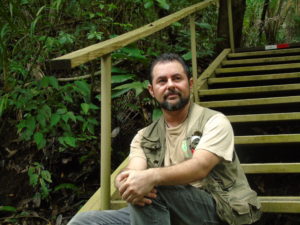 Nombre: Pedro G. Méndez-Carvajal PhD.
Nombre: Pedro G. Méndez-Carvajal PhD.
País: Panamá
Idiomas: Español/Inglés
Posición: Autor, Colaborador de fotografía
Afiliación: Fundación Pro-Conservación de los Primates Panameños (FCPP) y Universidad de Panamá (UP), Departamento de Fisiología y Comportamiento Animal, Escuela de Biología.
Bio: Soy candidato doctoral de la Universidad de Durham, Reino Unido, trabajo en la Universidad de Panamá. Soy fundador e investigador principal de la FCPP donde trabajo en el estudio científico y la conservación de 13 subspecies de primates de Panamá desde el 2001 al presente. Soy coordinador del Grupo de Interés Temático de Primates Mesoamericanos de la Sociedad Mesoamericana para la Biología y la Conservación (SMBC) y miembro del Grupo de Especialistas de Primates del Neotrópico de la Unión Internacional para la Conservación de la Naturaleza (NPSG-IUCN). Investigador Asociado de la Estación Científica Coiba-AIP, director del proyecto de Ecología y Genética Poblacional de Primates de Isla Coiba.
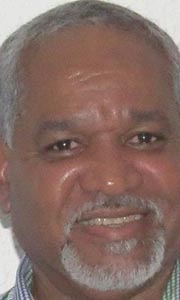 Name: Francisco Farnum
Name: Francisco Farnum
Country: Panamá
Position: Contributing Author
Language(s): Spanish, English
Affiliation: Universidad de Panamá
Occupation: Plant Biology/Natural Resource Management
Bio: Conservationist, wildlife biologist and naturalist Francisco Farnum received his degrees in biology and education from Universidad de Panama. He is a professor in the department of botany and director of the school of biology at the University Regional Center of Colón. He has been a researcher of PROBIO, CIMECNE and CEREB. In 2008 he founded and advised Biofuture, the student association of biological research. He researches forest ecology and ethnobotany. He has been a lecturer at the University of Panama, Interamerican University of Distance Education, American University.
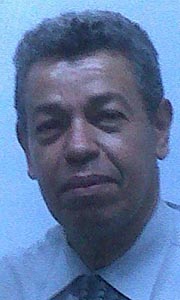 Name: Luis Ernesto Sánchez Osorio
Name: Luis Ernesto Sánchez Osorio
Country: Panama
Position: Contributing Author
Language (s): Spanish
Affiliation: University of Panama
Occupation: Zoology, Biodiversity and Conservation of Mollusks
Bio: Professor in the Department of Zoology, Columbus University Regional Center, University of Panama. Specialist in zoology with orientation in malacology, University of Panama. Master's degree in zoology, University of Panama. Has been researcher of ABIOCRUC. Science Advisor for the Association student of biological research BIOFUTURE. His research is on biodiversity and conservation of mollusks. He has been Professor at the University of Panama, Panama's Ministry of Education, inter-American University of education distance UNIEDPA, in the departments of Environmental Biologia-Ciencias Naturales-Medio and Humano-ecologia - embryology-biology, Marina-anatomia development and comparative human-anatomy of vertebrates and invertebrate genetic statistics.
Papua
Name: Jerry GANDO
Country: Papua New Guinea
Language(s): Misima
Position: Ethnotranslator
Affiliation: Summer Institute of Linguistic (SIL)
Occupation: Translator
Bio: Male, DOB 06/01/59, married 4 children/ PNG citizen
Spain
Name: Montserrat
Surname: Franquesa-Soler
Country: From Spain; Living in México since 2011
Language(s): Spanish (mother tongue), English, Catalán
Position: Contributing Author
Affiliation: CONAHCyT; Instituto de Neuroetología, Universidad Veracruzana, Xalapa, México; Miku Conservación, AC
Occupation: Postdoctoral researcher
Bio: My academic background in psychology and Ph.D. in ecology allows me to take a multidisciplinary approach to conservation biology and sustainable actions. My research focuses on the human dimension of wildlife, studying the relationships between both systems to ensure socioecological integrity (e.g., participatory monitoring, ethology, ethnobiology; community-based conservation). Currently, I am a postdoctoral researcher at Universidad Veraruzana focused on studying the relationships and interactions between people and mammals in different anthropogenic environments through social and ecological tools. I try to base my design on the Participatory Action Research approach, creating scenarios where different actors are central. I also participate as Director at the Mexican NGO Miku Conservación, AC.
And.. I indulge in my passions for photography, yoga, and playing the piano
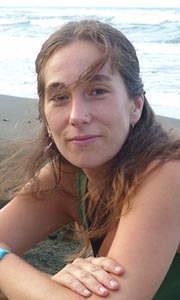 Nombre: Barbara Barrera Vilarmau
Nombre: Barbara Barrera Vilarmau
País: España
Idiomas: Español / Inglés
Posición: Autor colaborador
Afiliación: Refugio de Vida Silvestre Laguna Urpiano
Profesión: Bióloga de Ecosistemas
Bio: Barbara Vilarmau es una bióloga española que tras finalizar sus estudios en la Universidad de Salamanca en 2010, se embarcó en la aventura de conocer las tortugas marinas del paraíso de la biodiversidad que es Costa Rica. Tras trabajar en diversos proyectos de conservación de tortugas marinas en Costa Rica y Panamá se embarcó en la dirección científica del Refugio de Vida Silvestre Laguna Urpiano. Allí, además de seguir el estudio poblacional de la mayor colonia de tortuga baula del caribe y tratar de recuperar nidadas de la gran presión humana; se realizan también diversas labores de mantenimiento del ecosistema forestal y su fauna así como educación ambiental de la población local y visitante.
Uruguay
Name: Gabriela Gutiérrez M.A.
Country: Uruguay
Language(s): Spanish, English, Italian, Portuguese, and French
Position: Traductora
Affiliation: Baylor University – Waco, TX
Occupation: Lecturer of Spanish
Bio: Gabriela Gutiérrez has been an educator for over 20 years. First, as a Spanish teacher she worked with young children in the private sector, then in public middle schools and high schools, and now as a Lecturer at the college level. She received the Bachelor’s in Spanish from Tarleton State College and her M.A. from Baylor University in Spanish. A life-long learner, Gabriela keeps expanding her knowledge as a translator. When she is not teaching or translating, she enjoys reading, painting, and spending time with her husband, Eduardo, and their family. She loves the outdoors, cooking, and watching foreign movies.
United Kingdom
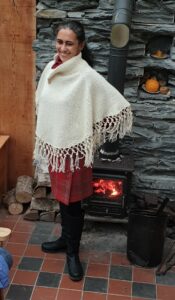
Name: Viveka Velupillai
Country: Shetland, UK
Language(s): English, Swedish, German
Position: Ethnotranslator
Affiliation: I Hear Dee; Justus Liebig University Giessen, Germany; Blyde Solutions;
Occupation: Linguist & fieldworker; film maker; knitwear designer.
Bio: Viveka Velupillai is Honorary Professor at the Department of English at the University of Giessen, Germany, but is based in Shetland, where her principal project is to document and describe Shaetlan, the high-contact language spoken on the islands alongside English, in a typological perspective. Her specialities include linguistic typology, contact linguistics and historical linguistics, and her work includes Her work includes An Introduction to Linguistic Typology and Pidgins, Creoles & Mixed Languages: An Introduction, as well as participation in the World Atlas of Language Structures, The Atlas of Pidgin and Creole Language Structures and The Automated Similarity Judgement Program. She is particularly interested in the interaction of language, place and the environment, and the effect of linguistic diversity on economic resilience and environmental sustainability. This is also what her Language & Place films explore. She is furthermore interested in the effects of digitalk in giving written voices and growing acceptability to stigmatized and marginalized languages.
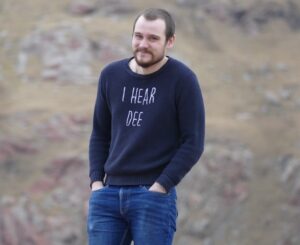 Name: Roy Mullay
Name: Roy Mullay
Country: Shetland, UK
Language(s): Shaetlan, English
Position: Ethnotranslator
Affiliation: I Hear Dee
Occupation: graphic designer, shop assistant, embroiderer, linguistic fieldworker, language enthusiast
Bio: (Shaetlan) Roy Mullay is a native spaekker o Shaetlan wi a keen interest in linguistics an a backgroond in game programmin. He is maed Jakob Jakobsen's Etymological Dictionary of the Norn Language in Shetland avaelable apø da Internet Archive an is eenoo transcribin it tae be a web interfaessed searchable resource. Firbye dat he's time-served in graphic design wark an embroidery.
Bio: (English [en]) Roy Mullay is a native speaker of Shaetlan with a keen interest in linguistics and a background in game programming. He has made Jakob Jakobsen’s Etymological Dictionary of the Norn Language in Shetland available on Internet Archive and is currently in the process of converting it to a web interfaced searchable resource. He is also time served in graphic design work and embroidery.
United States
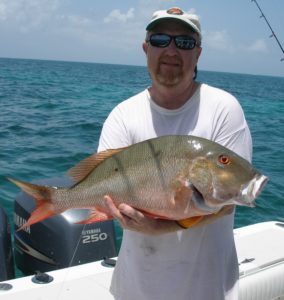 Name: Chuck Adams
Name: Chuck Adams
Country: USA
Language(s): English
Position: Contributing Author
Affiliation: University of Florida, Florida Sea Grant
Occupation: Professor / Marine Economics Specialist
Bio: Dr. Adams, a fifth generation Texan, received his BS in Fisheries Science and his MS in Agricultural Economics from Texas A&M University. He earned a PhD from the University of Florida's Food and Resource Economics Department (FRED) in 1984. He was hired as an Assistant Professor that same year in FRED and was promoted to Full Professor in 1994. He is also the Marine Economics Specialist for the Florida Sea Grant Program at UF, a position he has also held since 1984. Dr. Adams has an Extension appointment, but is heavily engaged in a wide variety of applied research efforts. His primary areas of specialty includes addressing economic issues related to marine fisheries management, seafood markets and demand, marine aquaculture feasibility, coastal industry valuation and impact, and the economic implications of changes in coastal environmental conditions. His work serves to assist industry, agency, and public user groups in their decisions regarding marine resource management, utilization, and investment. Dr. Adams has served on the Scientific and Statistical Committee of the Gulf of Mexico and South Atlantic Fisheries Management Councils, and currently serves as a Task Force member for the Gulf States Marine Fisheries Commission. He was a Gulf-region Sea Grant representative for the Gulf Seafood Marketing Coalition. Dr. Adams has published in a wide variety of economics and environmental journals, and has most recently been funded by the Gulf States Marine Fisheries Commission, the Gulf and South Atlantic Fisheries Foundation, the Florida Wildlife Conservation Commission, USDA, the Florida Sea Grant College Program, the Monterey Bay Aquarium Research Institute, NOAA, the Florida Department of Agriculture and Consumer Services. Dr. Adams is a member of the International Institute of Fisheries Economics and Trade, the North American Association of Fisheries Economists, the National Shellfisheries Association, and the International Association of Aquaculture Economics and Management. He is currently on the Editorial Board of the Journal of Harmful Algae, the Journal of Shellfish Research, and the Journal of the International Association of Aquaculture Economics and Management. Though his efforts have been mostly directed to issues within the Gulf of Mexico and South Atlantic regions, he has also been engaged in research projects in Micronesia, Nicaragua, Cuba, and Greece.
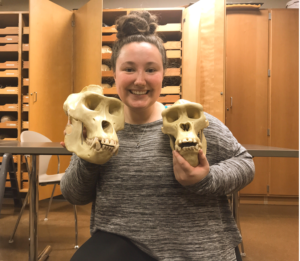 Name: Tara Capel
Name: Tara Capel ![]()
Country: USA
Language(s): English
Position: Primate Facilitator
Affiliation: Marine Conservation Without Borders
Occupation: Anthropologist and Science Educator – focuses on nonhuman primates, conservation
Bio: Trained as an anthropologist and primatologist, Tara Capel has collaborated on conservation projects in the United States, Costa Rica, and Cameroon. These research ventures have given Capel the chance to assess forestscapes for the possible reintroduction of endangered species (Mandrillus leucophaeus) and combine qualitative and quantitative methods to demonstrate the importance of local knowledge when practicing conservation (numerous species: Alouatta palliata, Cebus imitator, Ateles geoffroyi, etc.) Capel also aims to utilize participatory and applied methods, as well as a dash of creativity, to support previously existing environmental efforts and teach about nonhuman primates.
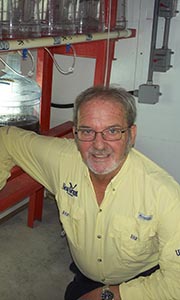 Name: R. Leroy Creswell
Name: R. Leroy Creswell
Country: USA
Language(s): English
Position: Contributing Author
Affiliation: Florida Sea Grant
Occupation: Marine Biologist – focus on tropical aquaculture, coastal ecology, marine science education
Bio: LeRoy Creswell is a Regional Education Coordinator for the Sea Grant Marine Extension Program at the University of Florida in Fort Pierce, Florida. His extension responsibilities include education and outreach programs in fields related to marine resource utilization, including tourism, commercial and recreational fishing, aquaculture, and coastal zone management. Leroy began his Sea Grant appointment in 2000, and his activities during his tenure at UF include 1) construction, development, and stocking marine organisms for the Smithsonian Marine Ecosystem Exhibit, 2) commercial production of marine shrimp in freshwater pond systems (FDACS), 3) developing aquaculture methods for alternative bivalve species to diversify Florida’s hard-shell clam aquaculture industry (IFAS), and 4) coastal ecology and habitat restoration of oyster reefs and salt marsh vegetation.
For over 17 years, Leroy was a research scientist at Harbor Branch Oceanographic Institution, Inc. and director of the Tropical Aquaculture department. His research focused on the development of aquaculture technologies for tropical marine invertebrates, including bivalve and gastropod mollusks, and several species of tropical crustaceans, such as the Caribbean spiny lobster. He also conducted studies on the larviculture and nutrition of ornamental marine fish and invertebrates. He holds two patents related to aquaculture, a trademarked line of ornamental fish feeds, and authored The Aquaculture Desk Reference. He taught graduate and undergraduate courses in aquaculture and served as adjunct faculty at Florida Institute of Technology and Indian River State College.
He served on the board of directors and was two-term president of the Caribbean Aquaculture Association and was the editor of The Caribbean Aquaculturist, a quarterly trade publication.
He served as director of the World Aquaculture Society and its president in 1994.
He continues to participate in annual conferences of WAS by serving on conference steering and program committees.
Leroy is a board member of the Gulf and Caribbean Fisheries Institute and is the executive secretary of the Institute. He has been the senior editor of the annual GCFI Proceedings during that period. Leroy is the past-president of the National Shellfisheries Association, two-term vice president, and a recipient of the prestigious David Wallace Award for his work in shellfish research and extension.
He is currently the editor of the NSA quarterly newsletter.
He is past-president of the Florida Association of Natural Resource Extension Professionals.
Leroy has authored over 60 peer-reviewed publications and manuals, several invited book chapters, and has been the principal editor for 16 books related to aquaculture and fisheries. He regularly reviews manuscripts for peer-reviewed journals, and serves on the editorial board of the Journal of Shellfish Research.
He coordinated an oyster restoration program for the Indian River Lagoon. In that capacity, he interacted with non-governmental organizations, municipal, county, and state agencies, public schools, and academic institutions to promote shellfish restoration and aquaculture for the environmental services and economic benefits they provide. Currently, he is project manager for the community-based Coastal Habitat Restoration, an initiative under development by Florida Sea Grant Extension Program.
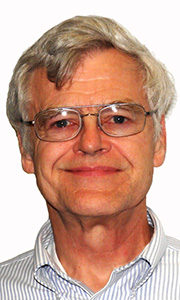
Name: Robert Wayne Van Devender
Country: USA
Language(s): English
Position: Photographic Contributor
Affiliation: Appalachian State University
Occupation: Biologist
Bio: Robert Wayne Van Devender was born in Roswell NM in July of 1947 and was chasing lizards around the desert before he was three years old. He caught his first snake, a diamondback watersnake, when he was 7 or 8 and has been chasing small animals ever since. After diversions into hunting and fishing he was captured by the challenges and prospects of herpetology (study of amphibians and reptiles) by field trips to West Texas during high school in the Dallas TX area. Four years at Yale produced broader interests in science, herpetology, and photography in lieu of any artistic ability. Later, at the University of Michigan, he realized his longstanding desire to go to see and study tropical creatures during his dissertation work on Jesus Christ lizards (Basiliscus basiliscus). At Michigan he also met and eventually married Amy Shrader, who continues to share his life to the present. After receiving his Ph.D. in 1975 he worked in the Museum of Zoology at Michigan, taught at Oklahoma State University, and carried out field surveys of endangered species in Michigan until he was hired at Appalachian State University in 1978 to teach Mammalogy and Herpetology.
The Boone years have produced many milestones in Van Devender’s life: three children; new love for salamanders, land snails, and leeches; travels to five new continents; publication of thousands of photographs and several papers on salamanders and leeches; life-long relationships with students and colleagues; and productive relationships with local, regional, and international herpetological societies and the Association of Southeastern Biologists. Recent years have seen increased focus on distribution and biogeography of land snails and the development of skills in both the scanning electron microscopy and molecular biology laboratories. His students have studied mammals, reptiles, amphibians and problems ranging from stream siltation to movements of hellbenders to the effects of environmental pollution on local populations. He still visits schools with his snake show and enjoys teaching to groups from second grade through graduate students.
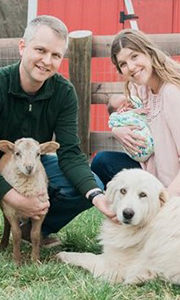
Name: Ashley Epling
Country: USA
Language(s): English
Position: BOD
Affiliation: Epling Farm
Occupation: Organic Farmer
Bio: Ashley Epling is a small farmer in the mountains of North Carolina. She holds a BS in Ecology & Environmental Biology from Appalachian State University. She is passionate about building resilient food systems that sustain our land, water, and resources as well as people and traditional livelihoods. Ashley's family farm business focuses on sustainable practices, heritage varieties & breeds, and traditional foodways. She also volunteers as president for the Asheville chapter of Slow Food USA .
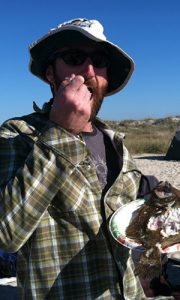 Name: Andrew (Drew) A. Gentry
Name: Andrew (Drew) A. Gentry
Position: Board of Directors
Occupation: Natural Resource Manager
Affiliation: City of Raleigh Parks Maintenance
Position: District Gardener
Country: United States
Language: English
Bio: Drew Gentry works in the Parks Department for the City of Raleigh, North Carolina. His focus is on restoring natural areas and stream corridors, chiefly by removing non-native invasive vegetation and replanting with native species. The goal is to provide better habitat for wildlife and to create better experiences with nature for the surrounding communities.
Drew attended Appalachian State University and met Robby Thigpen through the Biology Department. He was introduced to marine ecosystems through a course in coral reef biology, which included a research trip to Belize. When Robby was down there doing lobster research and living on Caye Caulker, Drew was one of the few North Carolinians to pay a visit, and spent many memorable days out there and on the mainland. Drew has seen Marine Conservation without Borders grow since its inception years ago, and joined the Board of Directors because he believes that conservation education is the key to preserving our natural heritage in perpetuity.
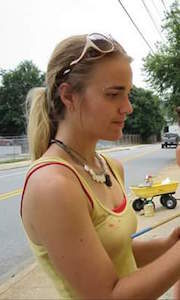 Name: Madison Heltzel
Name: Madison Heltzel
Country: U.S.A
Language(s): English
Position: Illustrator
Affiliation: Marine Conservation Without Borders
Occupation: Artist/Care Provider
Bio: Madison is an Artist based in Asheville, North Carolina. She has a lifelong interest in the conservation and protection of the natural world, and uses art as a medium to raise awareness about ecological issues. In 2013 she graduated from Guilford College in Greensboro, NC with a double major in Studio Art and Religious Studies. She has experience in many fields including conservation research, environmental education, wilderness therapy, and providing support for the Autistic community. She loves traveling and exploring mountains, forests, and oceans across the world. She met Robby through like-minded friends who share our passion for the great outdoors.
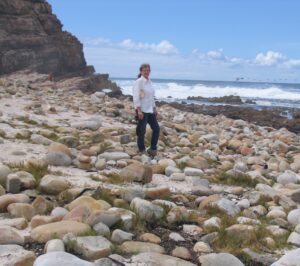 Name: Jacqueline Michel
Name: Jacqueline Michel
Country: USA
Language(s): English
Position: Contributing Author
Affiliation: Research Planning, Inc., Columbia, South Carolina, USA
Occupation: Marine scientist
Bio: Dr. Michel is one of the leading scientists in oil spill response, having been part of the U.S. National Oceanic and Atmospheric Administration’s Emergency Response Division team since 1978, providing scientific support to the U.S. Coast Guard for 50-100 spills per year. She is the author of 100s of technical reports and peer-reviewed publications on impacts of oil spills and selection of appropriate response options, including mechanical, manual, chemical, and in situ burning. Dr. Michel has been recognized for her achievements through appointments to many respected committees and panels, including six committees of the U.S. National Academies of Science, Engineering, and Medicine.
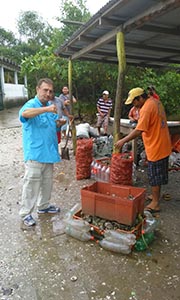 Name: Robert “Robby” C. Thigpen
Name: Robert “Robby” C. Thigpen
Position: Principal Investigator
Affiliation: Marine Conservation without Borders
Position: Principal Author, Editor & International Coordinator
Curriculum Vitae
Country: South Carolina
Language(s): American English, Kiswahili, Maasai, Lasoga, Pokot, East African English, Kriol (Belize), Ingles de Isleños y un muy poco Español
Bio: Robby unites his enthusiasm for culture and environmental stewardship in his many roles for Marine Conversation without Borders. This latter-day Bohemian studied cultural anthropology and a self-designed marine science program at Appalachian State University, as he guided class 5 rafting tours and solo climbed rock routes in the Appalachian and Rocky Mountains. Before that, he learned how the Maasai hunt lions from a Maasai elder. Indeed, he is a renaissance man like no other. He presently researches the artisanal fisheries of the western Caribbean as he meets with marine scientists, fisheries professionals, and indigenous peoples groups to ensure the accurate and clear transfer of marine and coastal conservation concepts from marine scientists to local fisher folk. This all-inclusive community driven focus is at the core of what he believes and how he lives his life. He has walked, swam, and taken boats across the borders of many of the countries of the Americas inspired by his desire to create an organization that delivers marine conservation science education in the languages of the people most immediately impacted by these over-exploited fisheries.
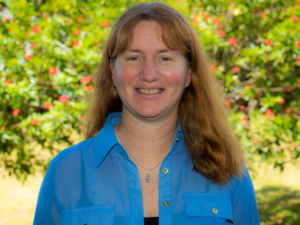
Name: Beth Brady
Country: USA
Language(s): English
Position: Contributor
Affiliation: Sirenian International
Occupation: PhD candidate at Florida Atlantic University and President of Sirenian International
Bio: Beth was born and raised in rural Pennsylvania and first found her interest in marine life on a family vacation to SeaWorld. Although she initially went to school to be a registered nurse, after a few years of nursing, she realized her true passion was marine biology. She returned to school and got her undergraduate degree at Kutztown University, Pennsylvania. After graduation, she volunteered with multiple marine mammal and wildlife organizations and found her love of manatees through an extended internship at Florida Fish and Wildlife (FWC). After the internship, she completed her Master’s at Nova Southeastern University where she first became involved in studying underwater sound (acoustics). In addition to manatees, Beth has studied the vocalizations of dolphins, whales and even attempted alligators!! She has been researching the vocalizations of manatees in their aquatic environments for the past seven years. She is also an adjunct instructor in Oceanography at Broward College.
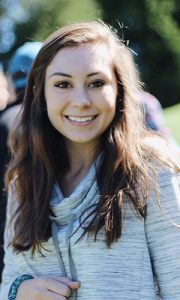 Name: Katie Deas Brooks
Name: Katie Deas Brooks
Position: Testing and Activity Development
Country: United States of America
Language(s): English
Affiliation: University of North Carolina Wilmington
Occupation: Student
Bio: Katie Deas Brooks is a rising freshman at the University of North Carolina at Wilmington (UNCW.) She plans to study marine biology at UNCW and focus on the conservation of reefs and marshlands. She hopes to spread awareness of conservation efforts to Caribbean countries, she accepted the opportunity to work on the project. Her cousin Robby Thigpen has told her stories of his lobster studies in Belize since she was young. This inspired her to pursue her passion for marine science and make a career of taking action against the depletion of marine ecosystems. In order for societies in the Caribbean basin to thrive and sustain their cultural/economical practices, their understanding of conservation is critical. Katie is thrilled to work alongside the diverse contributors of Marine Conservation without Borders to further this initiative.
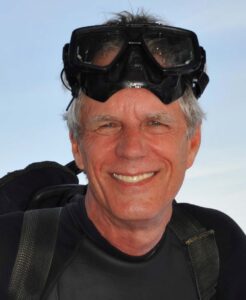 Name: Phil Dustan
Name: Phil Dustan
Country: USA
Language(s): English and enough French and Spanish to get in trouble but not out of it…
Position: Photographic Contributor
Affiliation: College of Charleston, SC
Occupation: Professor
Bio: Phil Dustan, College of Charleston, began his reef studies in Discovery Bay, Jamaica in the early 1970’s on the photobiology of reef corals conservation. However, much of his career has focused on human impacts on the vitality of coral reefs. He remains fascinated with sunlight as a driving ecological forcing function of corals and coral reefs, but realized in the 1980’s that unless more effort went into conservation nothing would be left for future generations. A founder of the USEPA Florida Keys Coral Reef/Hardbottom Monitoring Project and Cousteau Society Science Advisor, he pioneered remote sensing techniques to detect coral reef change, collaborated on developing coral molecular stress markers, and discovered White Plague coral disease. Retrospective studies of Jamaican and Floridian reefs that have changed almost beyond recognition, having lost 50% - >95% of their living coral cover, sparked collaborations with non-profits (Trees to Seas, Biosphere Foundation, Raja Ampat Research and Conservation Centre) to engage more locals in reef stewardship guided by science. Just like politics, conservation is local, beginning with local people and their actions.
Multimedia Credits (tv, video, film, web):
TEDx Charleston Can we save coral reefs, October, 2017.
Coral Reef Bleaching in Bali, NW Bali, Indonesia a video showing ecological change 2015 to 2016: https://www.youtube.com/watch?v=yxOfLTnPSUo
Caribbean Coral Reefs Through Time 1972 to 2013
Chasing Coral 2017, Coral reefs around the world are vanishing at an unprecedented rate. Sundance and Emmy award winning film
Vanishing Coral, Earth Focus Episode 72, 2017. The personal story of scientists and naturalists working with local communities to protect coral reefs. First aired on KCET TV 11 April 2017.
Coral Reef Bleaching in Bali, NW Bali, Indonesia a video showing ecological change 2015 to 2016
Caribbean Coral Reefs Through Time 1972 to 2013
Coral Reefs Canaries of the Sea, 2003. Glick, P. Reston, VA: National Wildlife Federation.
Mysteries of the Hidden Deep, 1976. Science Advisor to Undersea World of Jacques Yves Cousteau, Episode 34. Filmed in Belize, Jamaica, and Mexico.
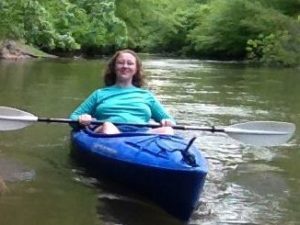 Name: Grace Fortune
Name: Grace Fortune
Country: USA
Language(s): English
Position: BOD
Affiliation: Appalachian State University
Occupation: GEAR UP ASU- College Access Partnerships
Bio: Grace Fortune worked with middle school children on the coast of North Carolina in Wilmington and in the mountains of NC in Boone, NC. She taught a class through the public school system entitled Project Venture. Project Venture is an experiential learning opportunity to encourage students to take care of themselves, their families, friends, community and the environment.
Grace taught team-building and communication games to students with the goal of increasing respect and self-reliance. Grace led students on outdoor adventure trips including: biking, bike maintenance, kayaking, river ecology, leave no trace, caving, hiking, camping, bow drill fires, knots, and ropes courses. Students learned a love and respect for their natural surroundings in hopes of creating environmental stewards for the future of Appalachia and across the globe. Students participated in community service projects to gain the sense of pride in giving back to others.
Grace’s current efforts include educating students and parents about college access opportunities for low income and first generation students. She continues to draw from the learning experiences in outdoor pursuits and community service. She is committed to providing experiential learning opportunities and giving youth the power to take care of themselves and their communities.
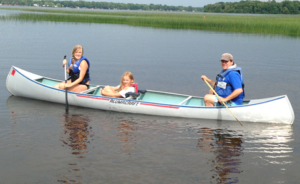 Name: Thomas Dean King
Name: Thomas Dean King
Country: USA
Language(s): English
Position: Board of Directors
Affiliation: Marine Conservation without Borders
Occupation: Information Technology and Data Management
Bio: Tom studied cultural anthropology with a focus on collective action institutions, economic development, and resource management in fisheries settings. He earned his Ph.D. based on work conducted in Belize among the fisherman of the Northern Fisherman’s Cooperative Society. Toward the end of his graduate education in 2000, Tom moved back to his home state of Minnesota, where he took up a career in information technology to pay for his education. He has supported businesses across insurance, retail, finance, and healthcare. He currently manages a data governance program for Optum, a division of UnitedHealth Group.
Tom’s tie to MCWB goes back to early discussions with Robby to form the ideas behind the Treasures “book project”. Tom and Robby maintained a dialogue focused on the specific challenges and opportunities to promote a sustainable future for the fishing peoples of Belize. Through the work supporting the mission and vision of Marine Conservation without Borders, Tom is applying his background in social science research, program management, and information technology and data management to help preserve the lifeways and ecosystems in places like Belize’s Northern Lagoon.
Tom currently lives in Minnesota where is spends his free time raising three children and nurturing their interests in youth sports, school, and other recreations. When the stars align he may even get outside for a walk in the woods or a fishing trip with friends and family.
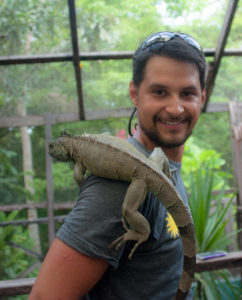 Name: Morrison Mast
Name: Morrison Mast
Country: United States
Language(s): English (native), Spanish (native), Portuguese (professional), French (basic conversational/professional), Dulegaya (basic conversational)
Position: Photographic Contributor
Affiliation: Stanford University, Graduate School of Business
Occupation: MS-MBA Candidate
Website: Morrison Mast Photography
Bio: Morrison's personal mission is to imbue others with an awe for the natural world. He is a conservation biologist, environmental educator, award-winning wildlife photographer, percussionist, and Fulbright scholar whose travels span 60 countries. He headed a community-based conservation and sustainable development program in Panama, and has worked on several field-based biological research programs in Madagascar, Botswana, Brazil, and Costa Rica.
Over the past 5 years, Morrison designed a volunteer program for youth which has brought hundreds of students into the field to work alongside wildlife conservationists. As of this writing (July 2019) he is the Special Projects Manager at Oceanic Society, and is about to begin an MS-MBA program at the Stanford Graduate School of Business, with a focus on Environment and Resources.
Name: Jaedon Kinser
Country: United States
Language(s): English
Position: Bookkeeper
Affiliation: Marshall University Class of 2022 and Mountwest Community and Technical College Class of 2020
Occupation: Service Advisor
Bio: Jaedon is currently working as a Service Advisor at a car dealership in the state of West Virginia, United States. He graduated with Magna Cum Laude honors from Marshall University with his Bachelor of Business Administration in the spring of 2022. 2 years earlier in the spring of 2020, he graduated from Mountwest Community and Technical College with 3 associate degrees in Management Technology with High Honors, Banking and Finance with High Honors, and Accounting with High Honors. Jaedon has always had a passion for helping others in the past he has worked as tax return preparer for the Volunteer Income Tax Assistance program that helps provide free tax returns to underserved communities throughout the United States. Beyond his education and volunteer work, Jaedon enjoys spending time in nature and taking road trips with his friends.
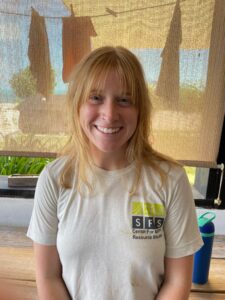 Name: Emily Ruebelman
Name: Emily Ruebelman
Country: USA
Language(s): English
Position: Grant Assistant
Affiliation: School for Field Studies, Turks and Caicos Center for Marine Resource Studies
Occupation: SFS Program and Outreach Coordinator
Bio: As a proud Michigan kid who called Ohio home, I am an avid card game player, lover of Jodi Picoult books, and fitness coach. I have always had an affinity for community, group dynamics, and leadership, and am passionate about these interests colliding through my work with SFS. During undergrad, I studied communication, human rights, and social justice at the University of Dayton. I’m a go-getter with energy to make a difference in the lives of those around me, so I spent my time in undergrad working internships at local and international non-profits as well as multiple coaching jobs in boxing, spinning, and HIIT. I am incredibly curious about the world and have a strong desire for cross-cultural connection. Within a few days working for SFS, I knew I could show my skills, grow as an individual and professional, and give my energy to helping others thrive during their abroad experience. SFS led me to assisting with MCB which has been a powerful connection of my interest in human rights and support of access to educational resources.
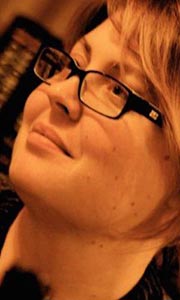 Name: Sarah Zurhellen
Name: Sarah Zurhellen
Position: Senior Editor, Board of Directors
Occupation: Lecturer at Appalachian State University
Affiliation: BOD Marine Conservation without Borders
Position: Senior Editor
Country: USA
Language: English
Bio: Sarah Zurhellen is a Lecturer in the Rhetoric and Composition Program at Appalachian State University, where she teaches freshman and sophomore writing classes and coordinates e-Portfolio technology for her department. She initially became involved in Marine Conservation without Borders as a senior editor and joined the Board of Directors because of her investment in the organization’s focus on the relationship between conserving ecological and linguistic diversity. Having spent many years as an assistant editor for the international journal Oral Tradition, she is dedicated to the idea that conserving the linguistic diversity of the world is inherently connected to conserving all of our natural resources.
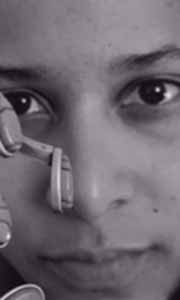 Name: Lee Odom
Name: Lee Odom
Country: USA
Language(s): English
Position: Board of Directors
Affiliation: Sweet Lee Music
Occupation: Musician/Composer
Bio: Lee Odom is a musician who has taken her classical training in clarinet performance and expanded to jazz and other genres of music. Lee studied classical clarinet under Dr. Douglas Miller at Appalachian State University in Boone, NC. After receiving a grant from the Hickory Arts Council for her music, Summer Winds, which was geared to 2nd and 3rd year middle school band students, Lee ventured to New York and continued studying music with JD Parron, adding saxophone, flute and bass clarinet. She has performed at various venues and music festival in the NY. Her music repertoire consists of pieces from the classical, jazz, R&B, and groove music.
Lee has a great concern and respect for our Earth and all its inhabitants and shares a strong love and support for Marine Conservation without Borders. She is honored to be a part this fantastic organization that is dedicated to helping to preserve not only marine life, but indigenous languages as well.

